The Faroe Islands is a self-governing archipelago, part of the Kingdom of Denmark. It comprises 18 rocky, volcanic islands between Iceland and Norway in the North Atlantic Ocean.
About Atlantic Airways
On March 28, 1988, Atlantic Airways landed for the first time at its home base Vágar, located on the Faroe Islands, which is an archipelago midway between Scotland and Iceland.
Atlantic Airways is 100%-owned by the Faroese government. The carrier is integral to the nation’s economy, transporting around 330,000 passengers to and from the remote islands annually. The small carrier operates in a very challenging environment, with constantly changing weather conditions. However, Atlantic Airways meet all standards that a modern airline should offer.
Here are some pictures from my recent flight on Atlantic Airways from Copenhagen to Vagar, Faroe Islands.
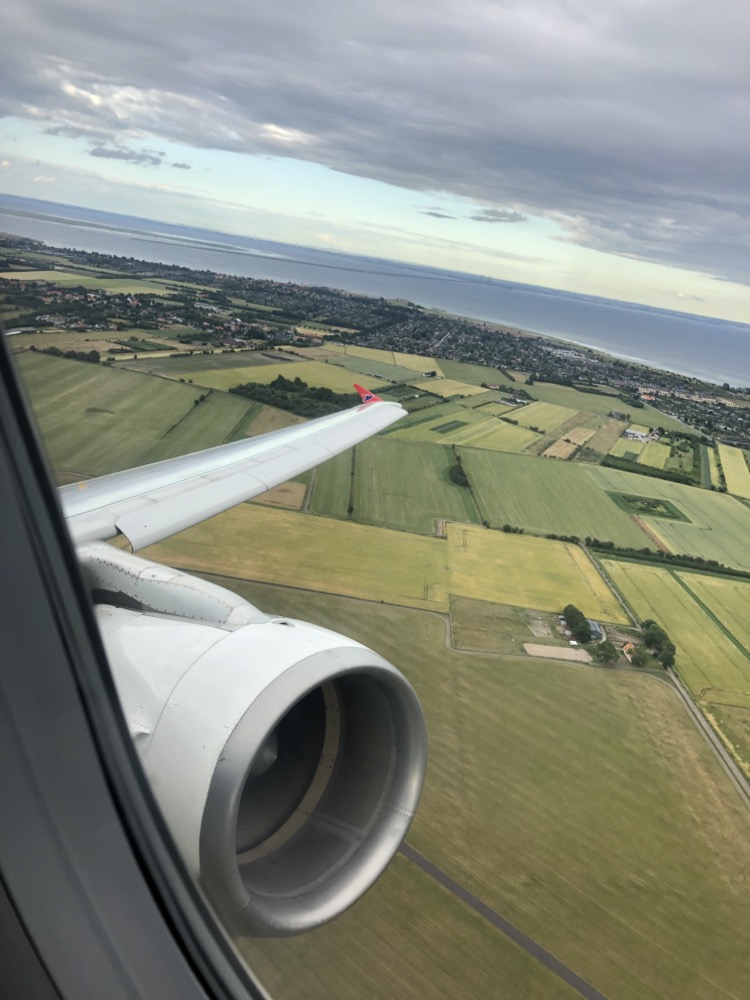
Atlantic Airways offers 176 all economy class seat layout on board its Airbus A320ceo and A320neo. Coffee and Water are for free, you can buy onboard drinks and snacks.
Another possibility is to pre-order meals, like this classic and very tasty smörrebröd. The chocolate has been made by a small company on the Faroe Islands.
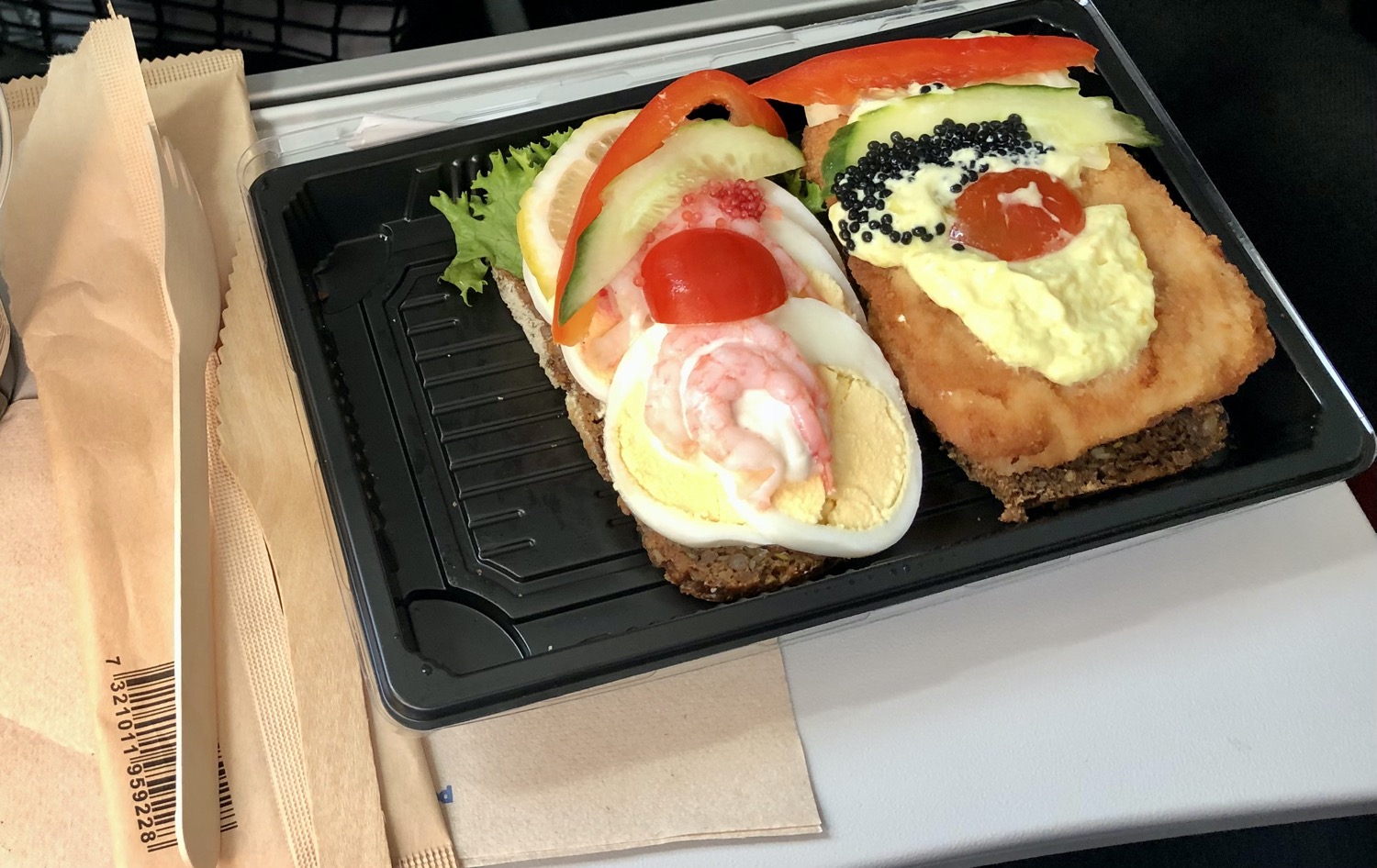
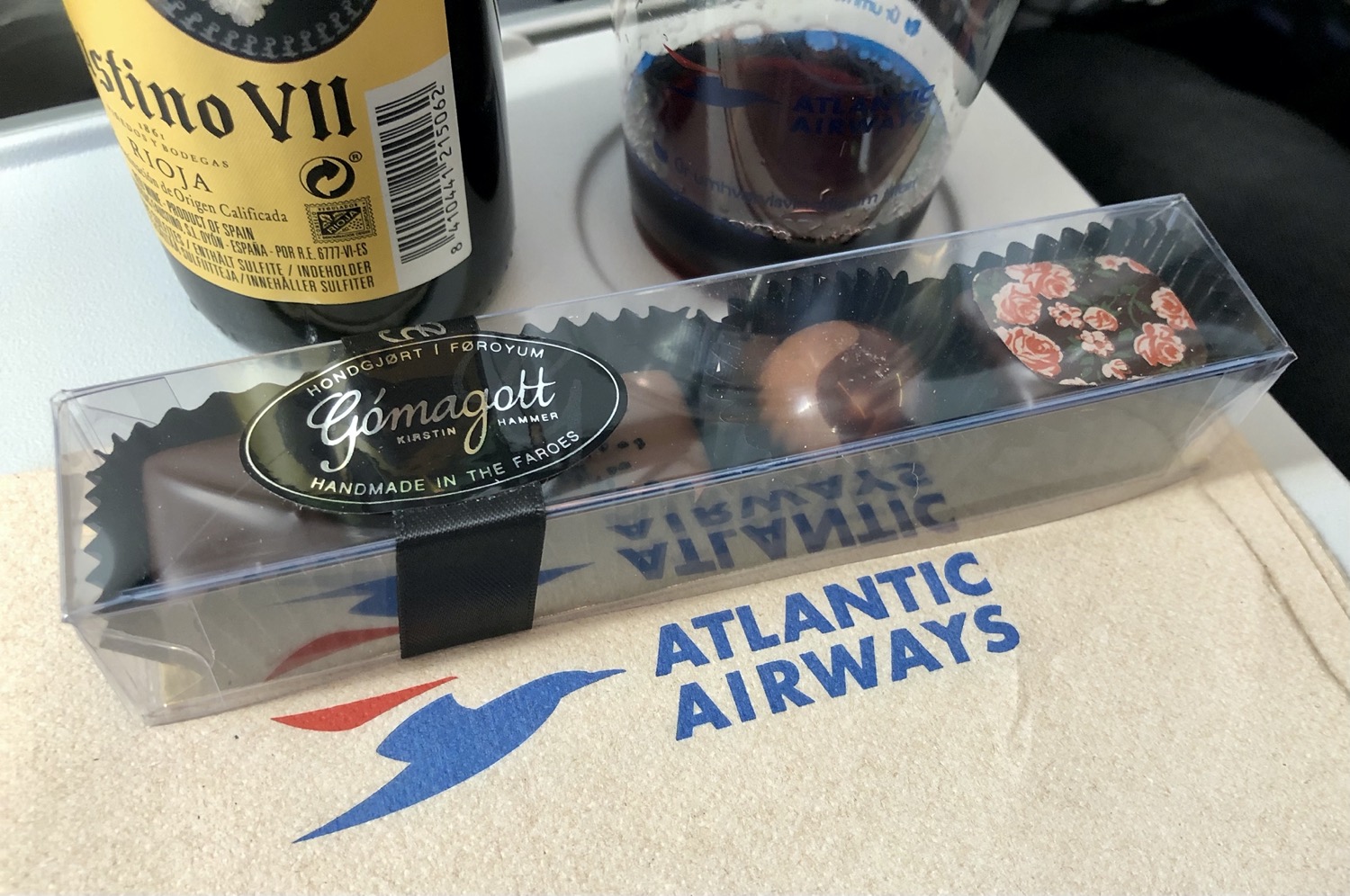
After a flying time of one hour and 55 minutes, landing at Vagar Airport. The route from Denmark was leading via the South of Norway, near the Shettland Islands to the Faroe Islands.
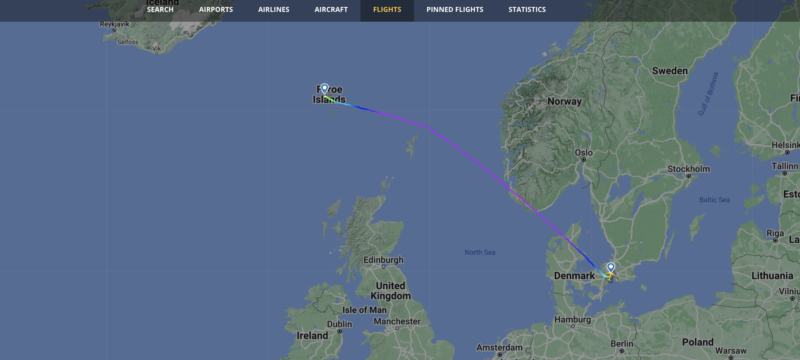
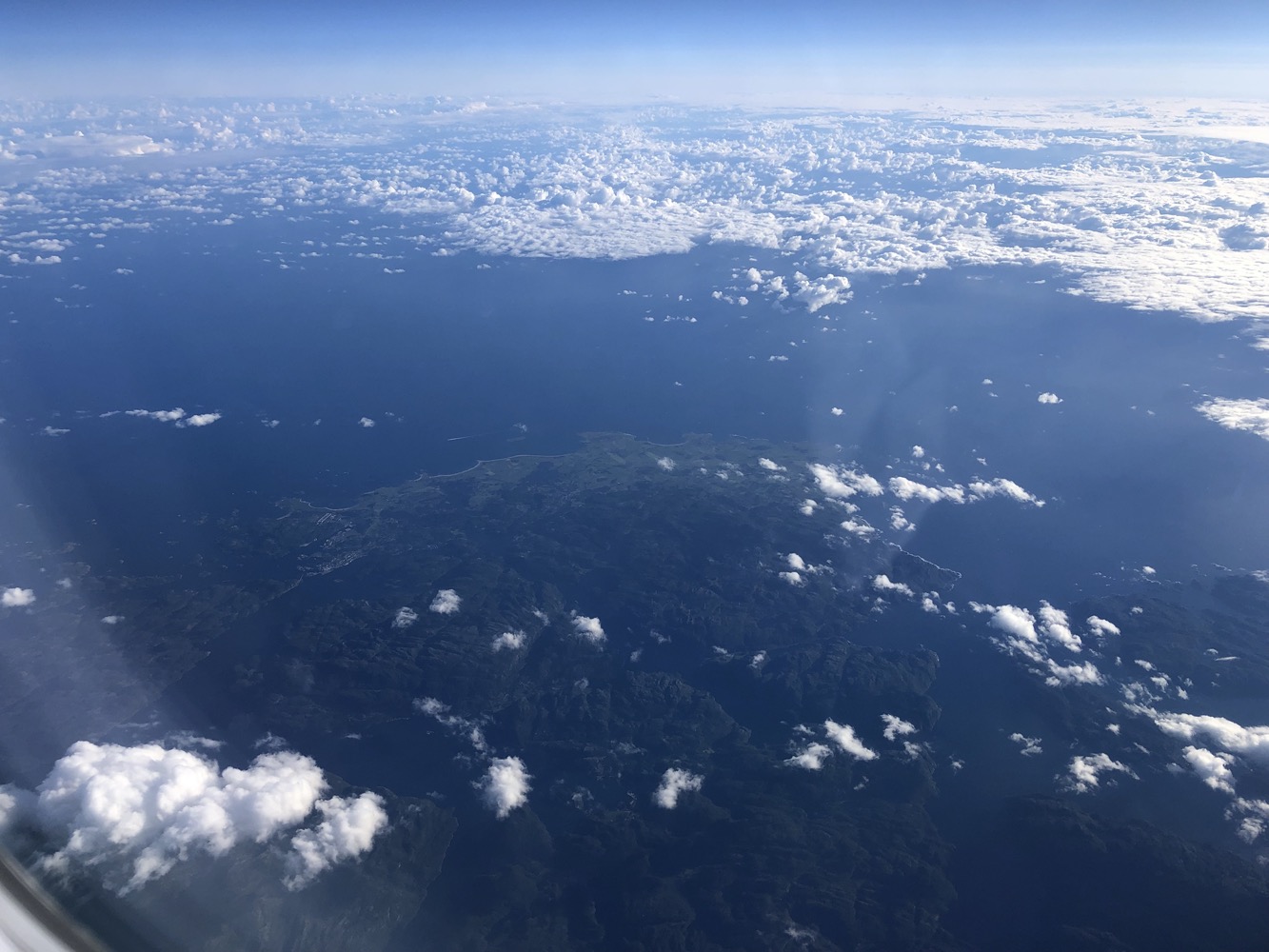
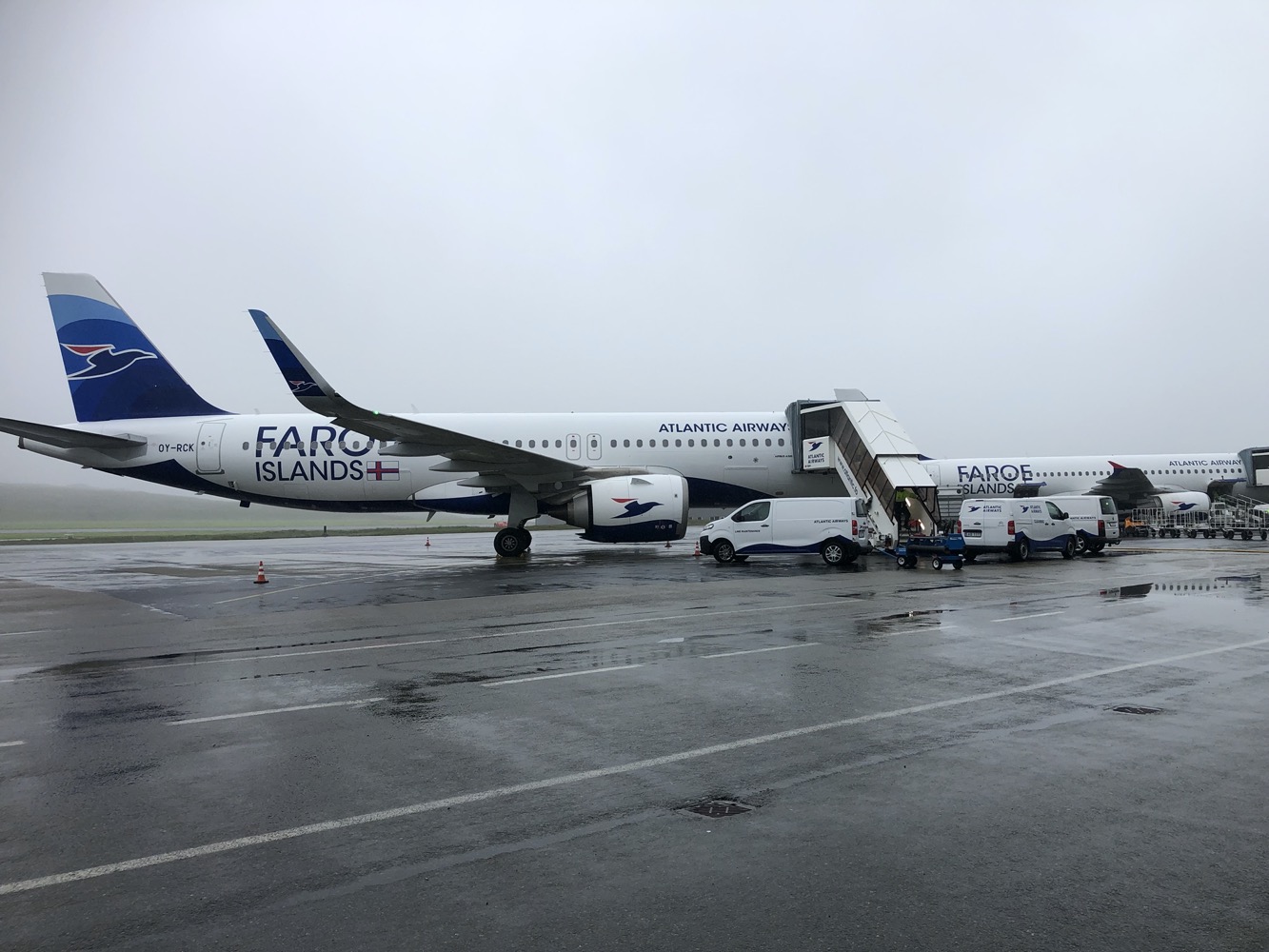
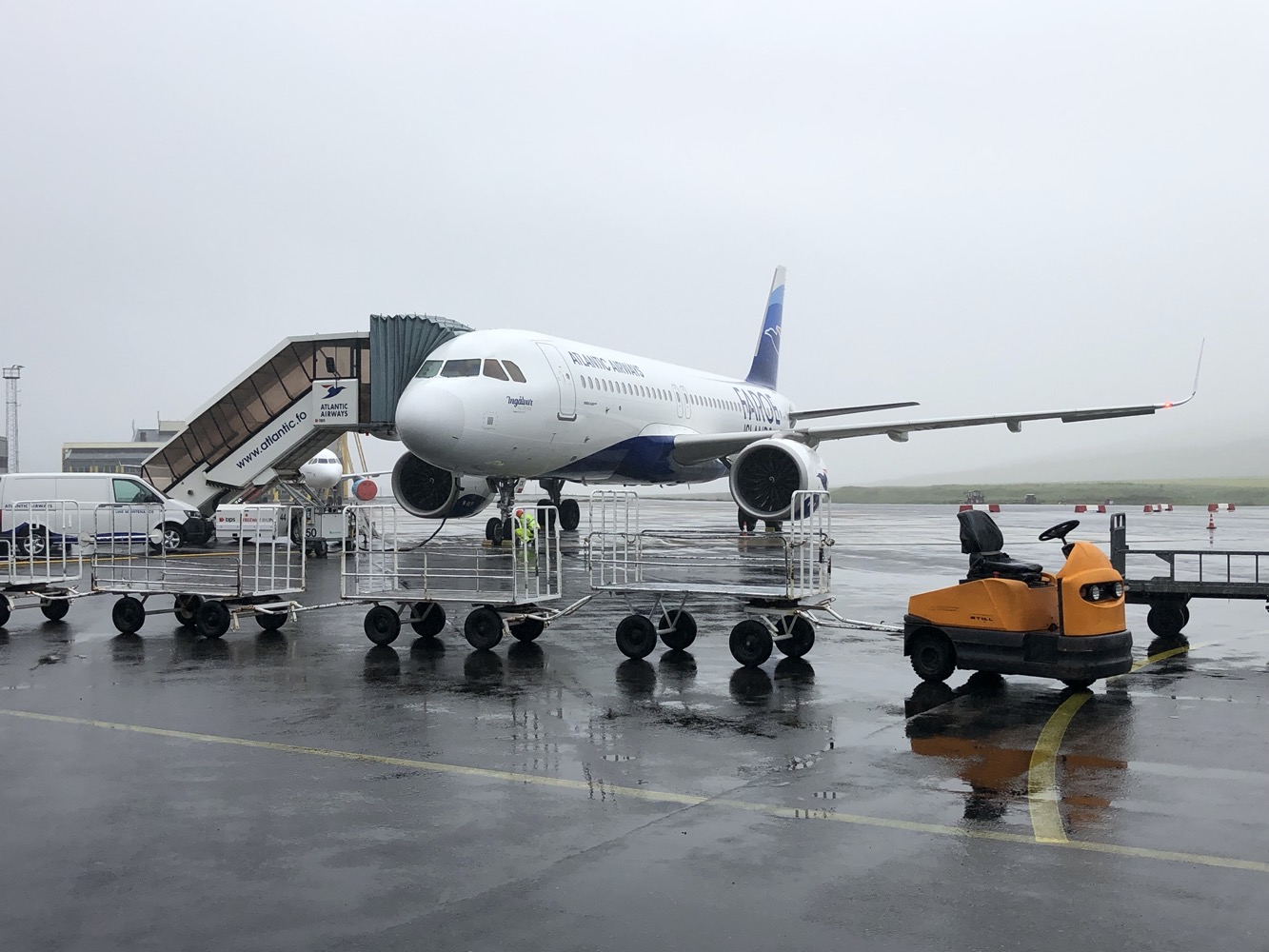
One Atlantic Airways A320neo just arrived from Copenhagen and will depart shortly for Billund in Denmark. “Our first priority is flying for the Faroe Islands and second we do charter flights,” CEO Johanna Bergi says. One-third of Atlantic Airways’ business is charter flights out of Denmark. This enables Atlantic Airways to keep the fleet busy year-round.
During the summer seasons, Atlantic Airways operate up to four daily flights to Copenhagen, most of them fully booked.
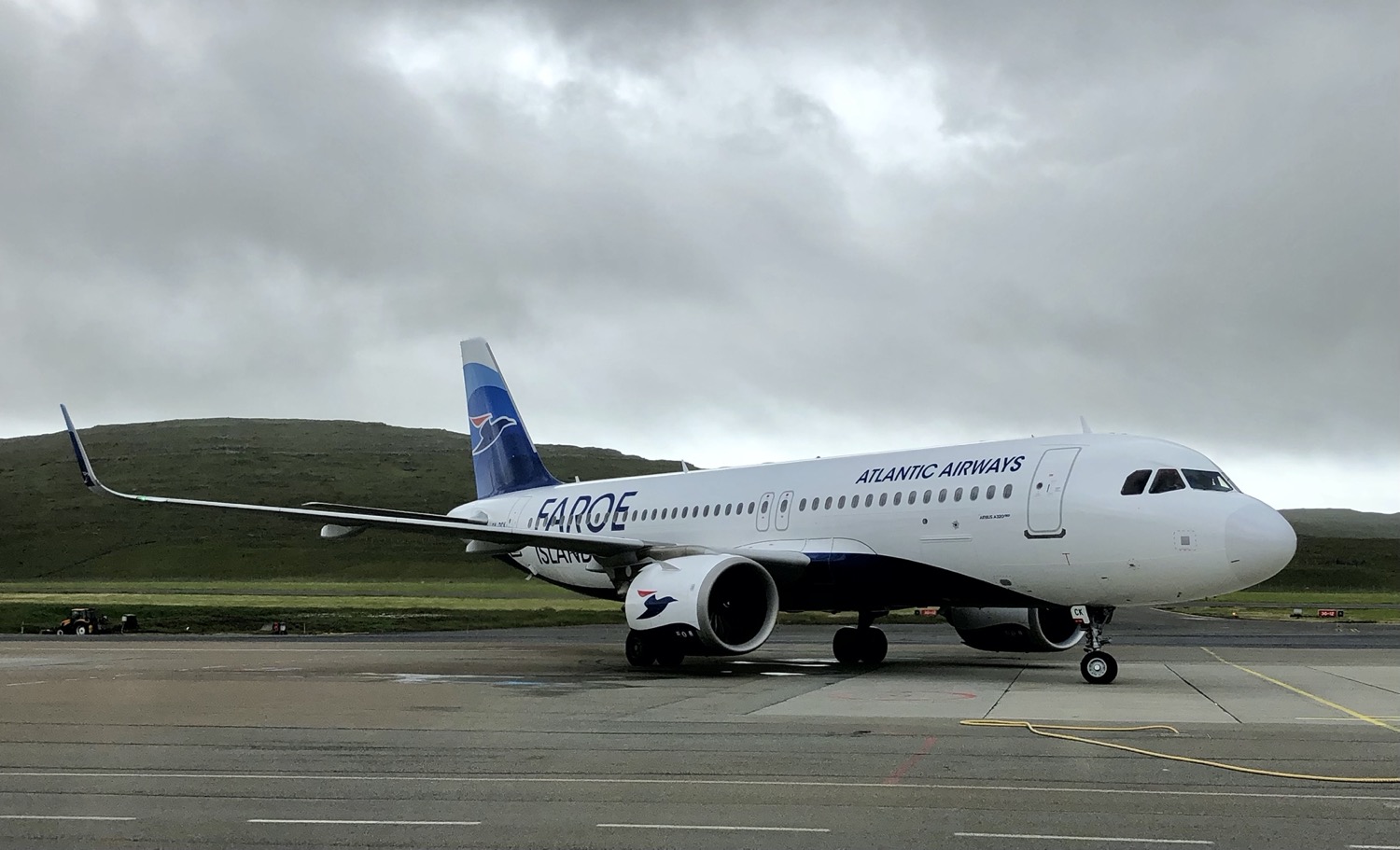
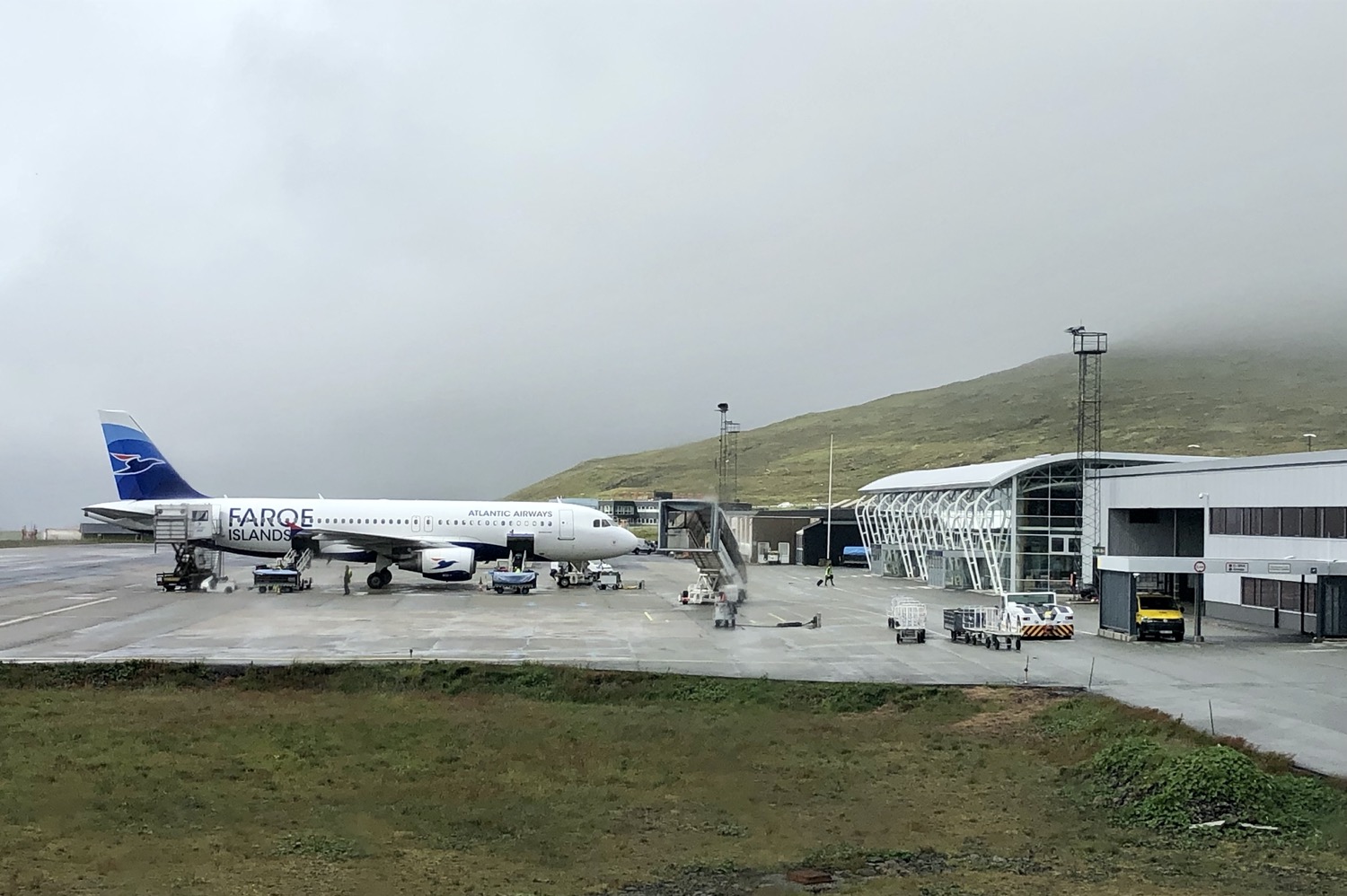
The terminal in Vagar is quite modern, but when two Airbus A320s departing at the same time, then it creates quite a busy atmosphere.
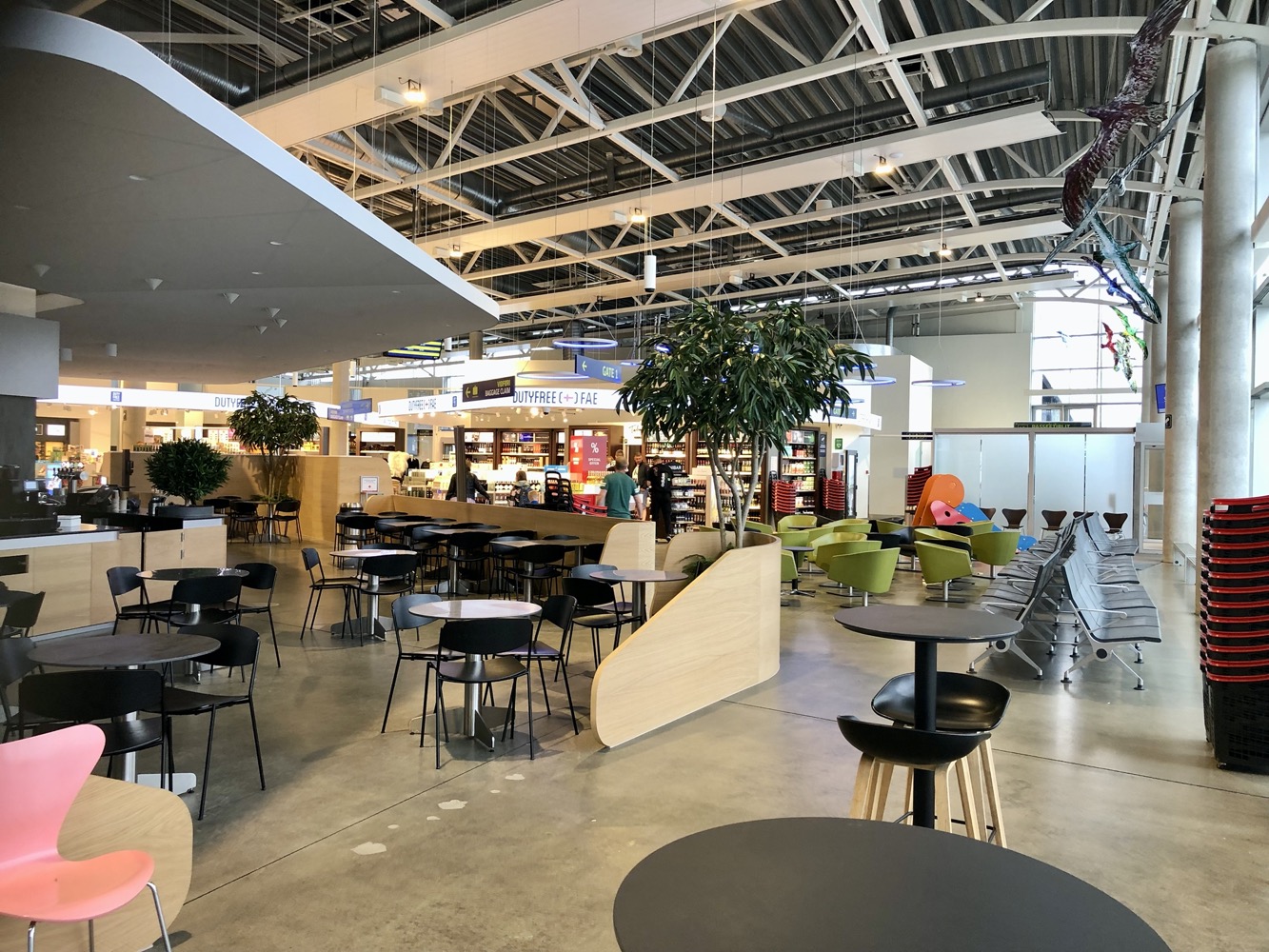
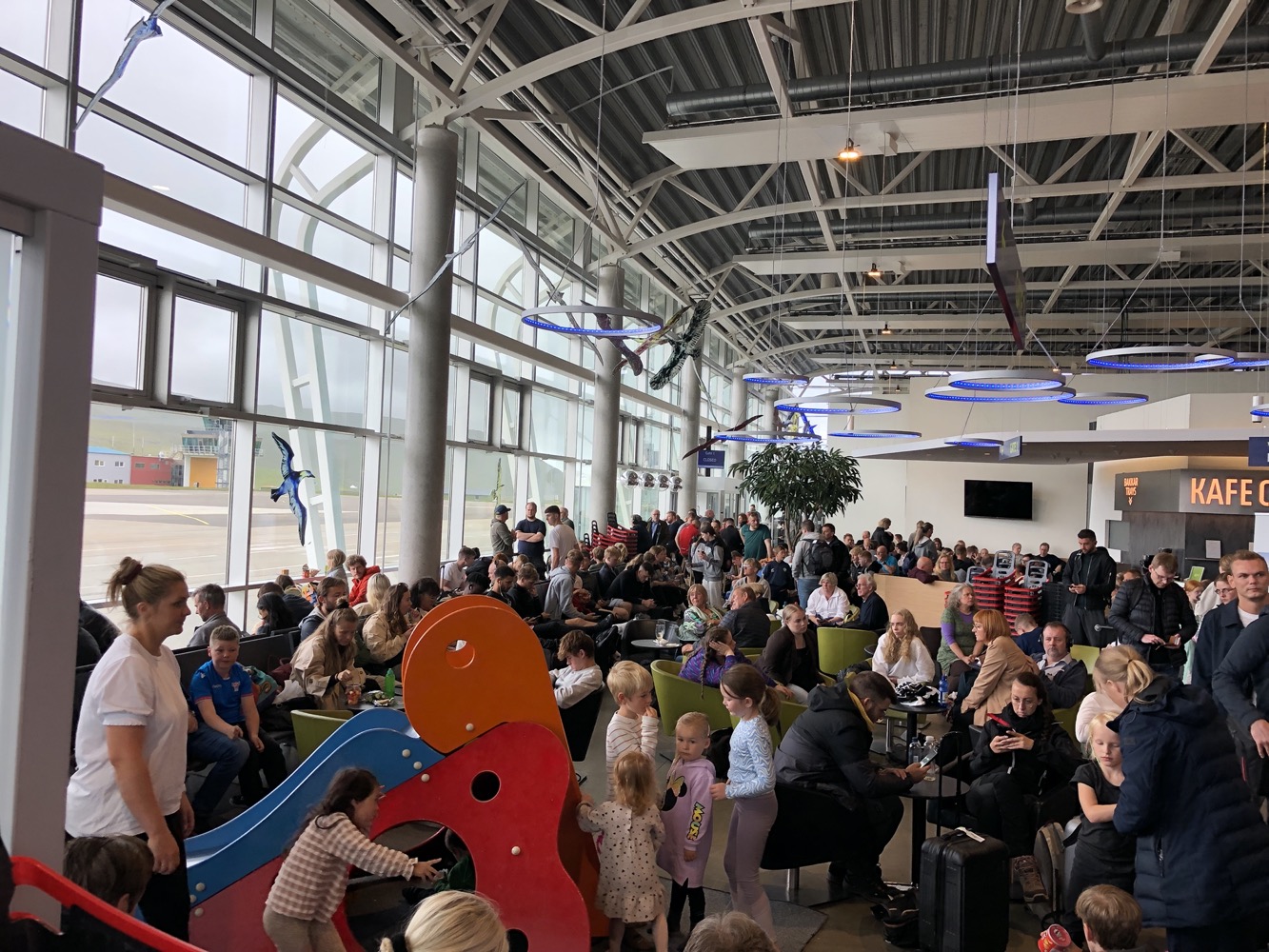
Scheduled Helicopter Services
Besides its Airbus A320 fleet, Atlantic Airways also operates two Leonardo AW130 helicopters, which it uses for search and rescue missions as well as domestic services to the smaller islands. Some islands have no ferry connection.
There are not many scheduled helicopter services existing worldwide. Atlantic Airways operates four days per week on domestic services by helicopter, each day with a different route network.
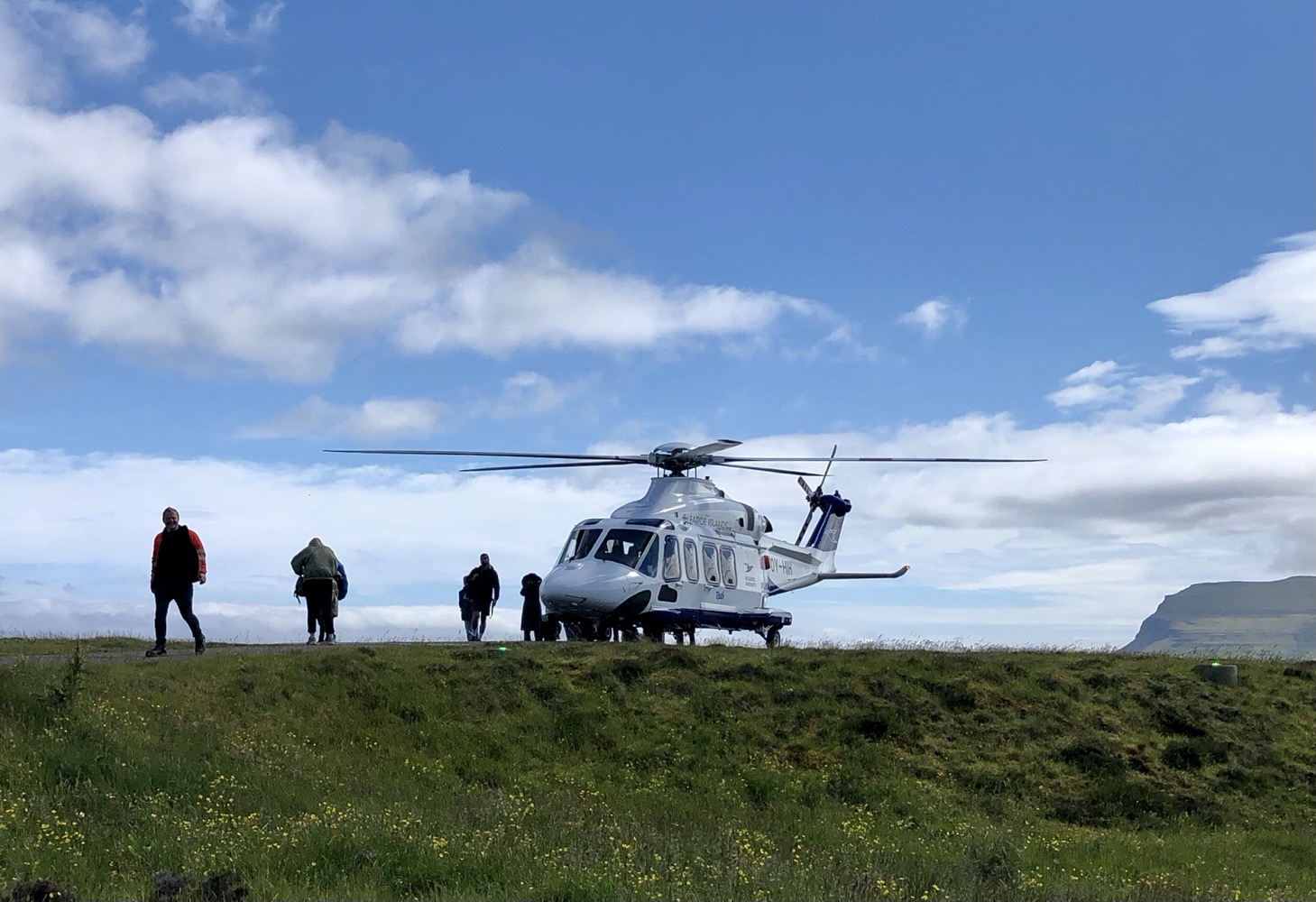
Most flights are always fully booked. Not only locals but also tourists discover these unique services. The shortest flying time is just 3 minutes from Svinoy to Kirkja, the longest sector is from Tórshavn to Skúvoy, which takes approximately 14 minutes.
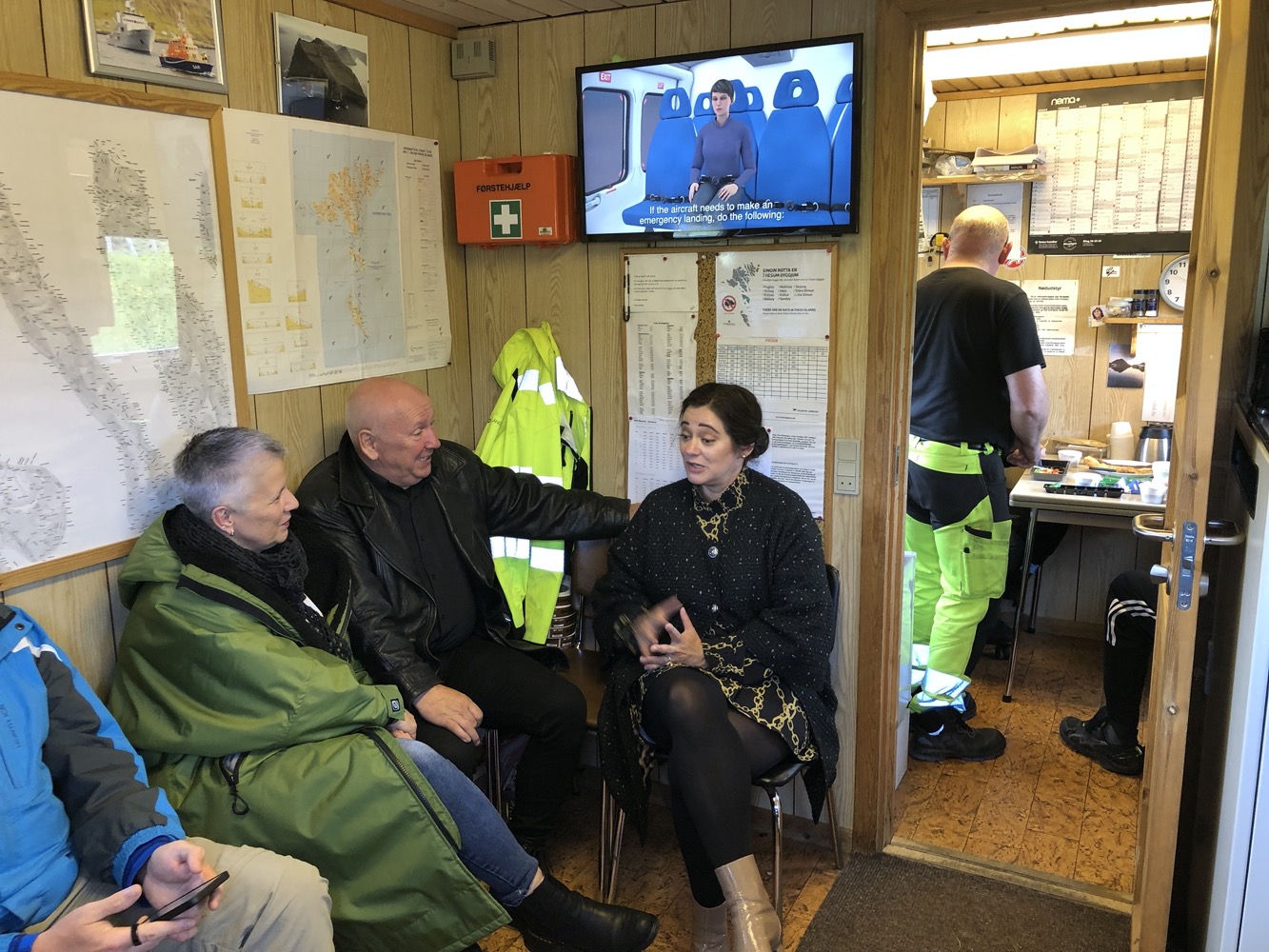
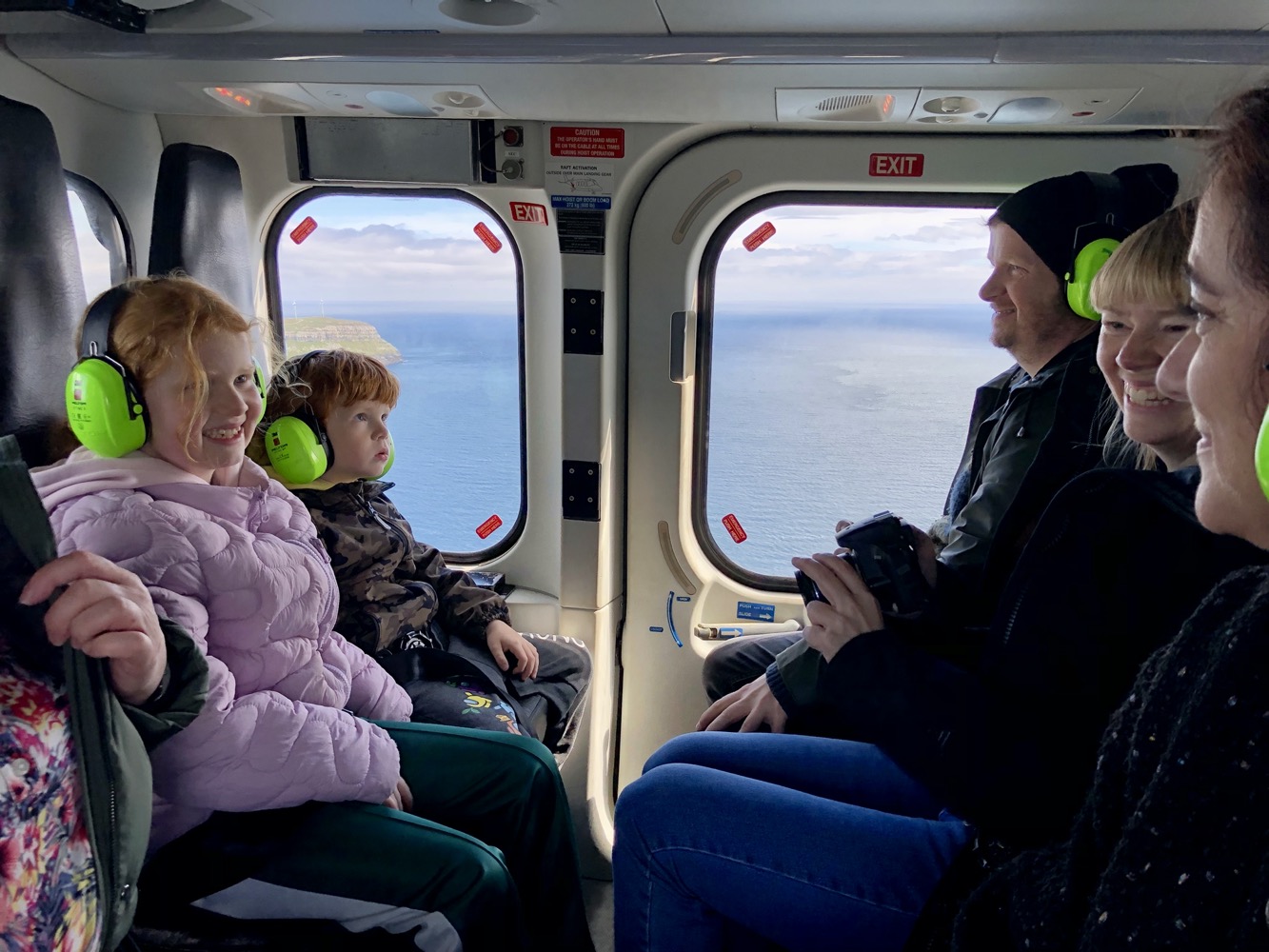
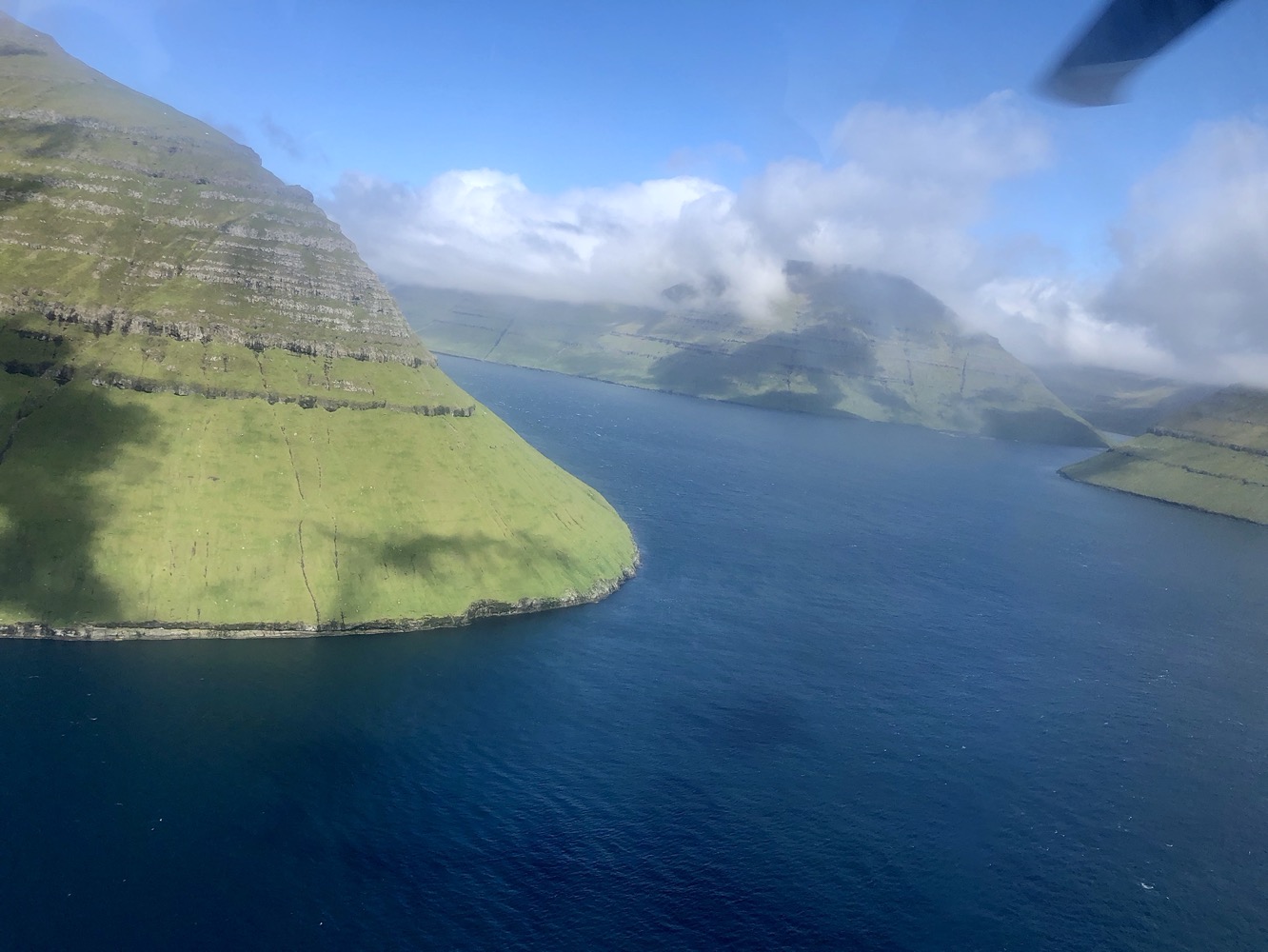
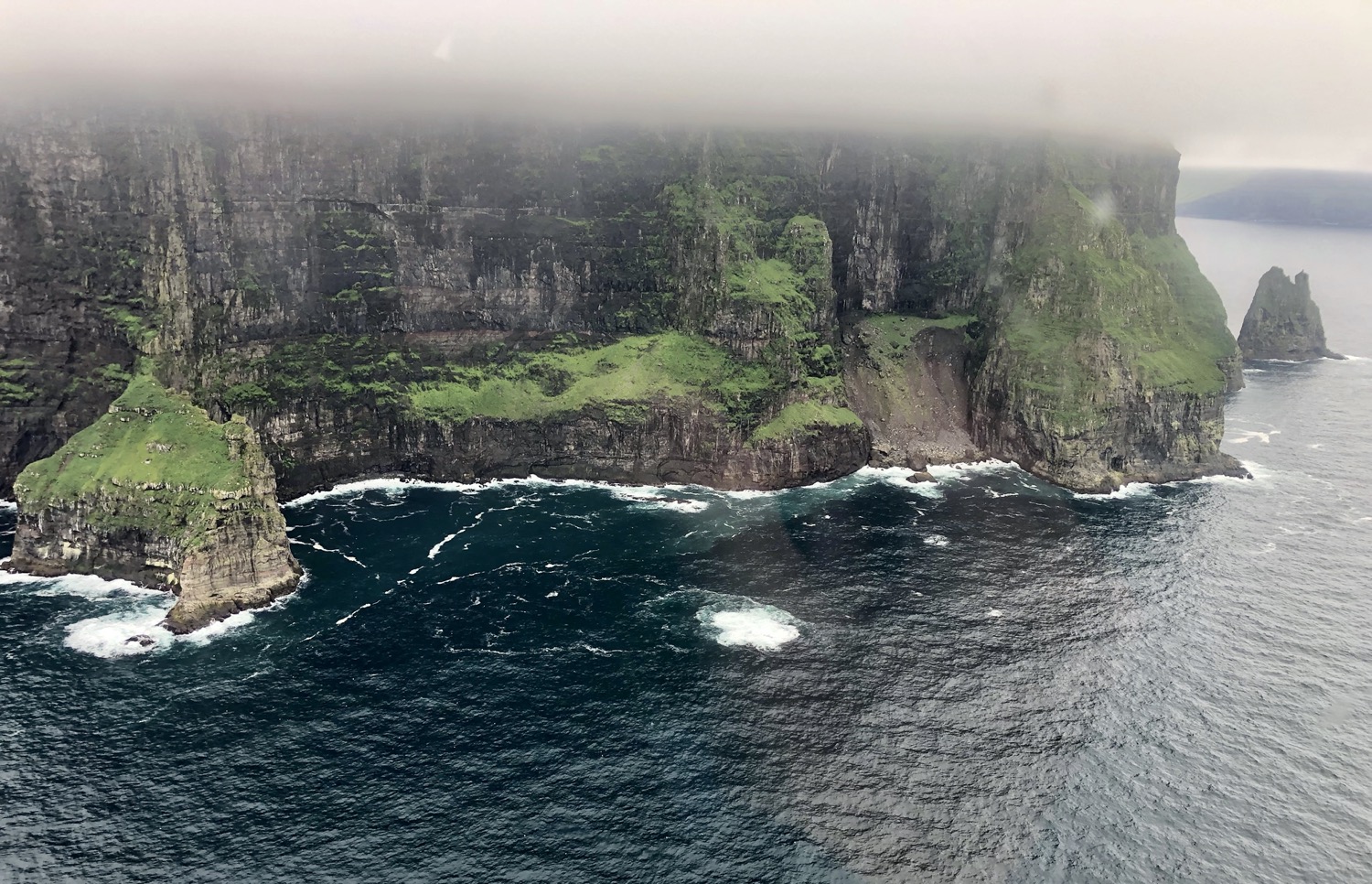
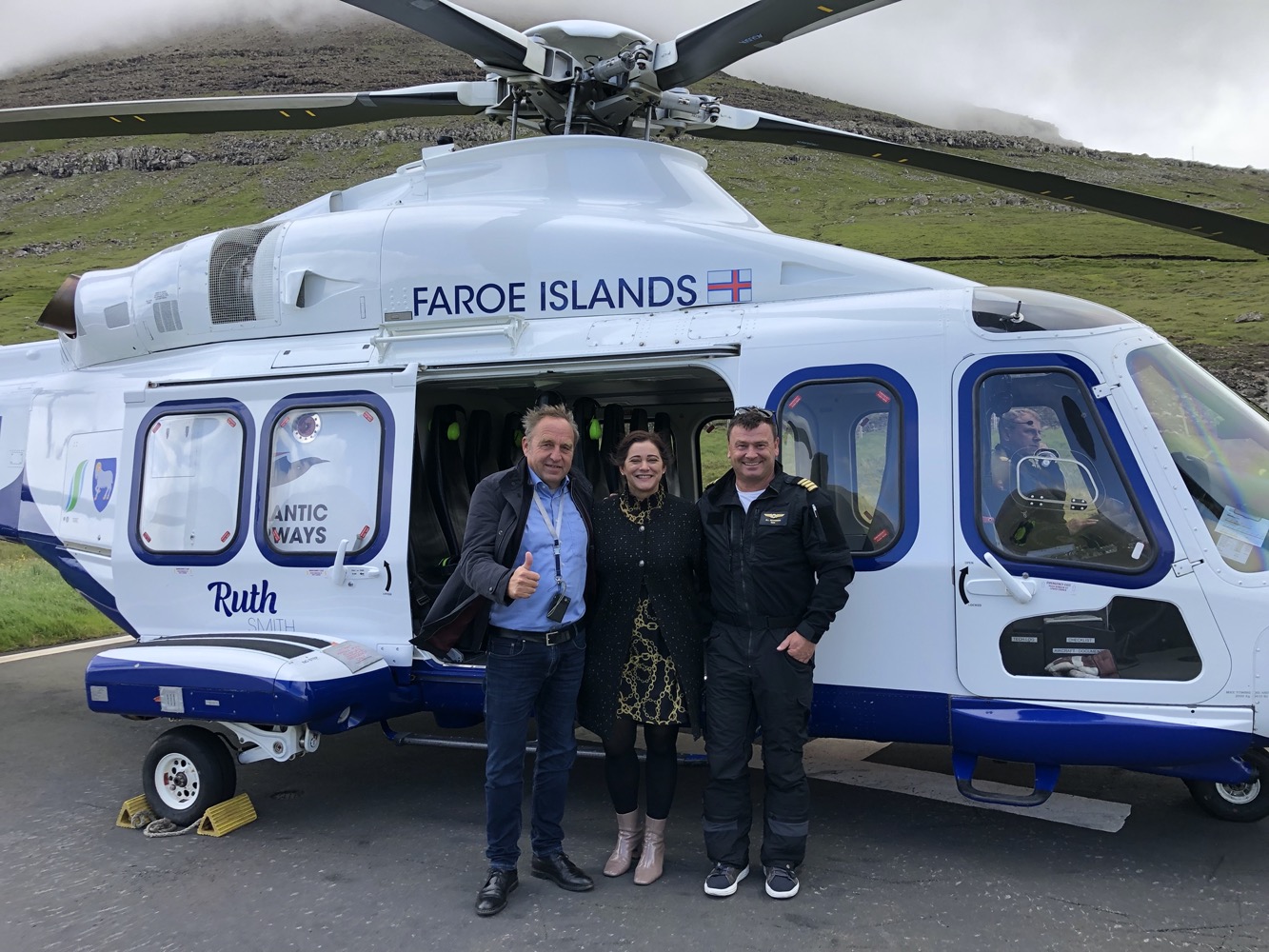
One of those remote places from the helicopter network is Klaksvik. Here in the barrack, the pilot checks weather conditions as the helicopter will be refueled. All domestic flights are financially supported by the local government.
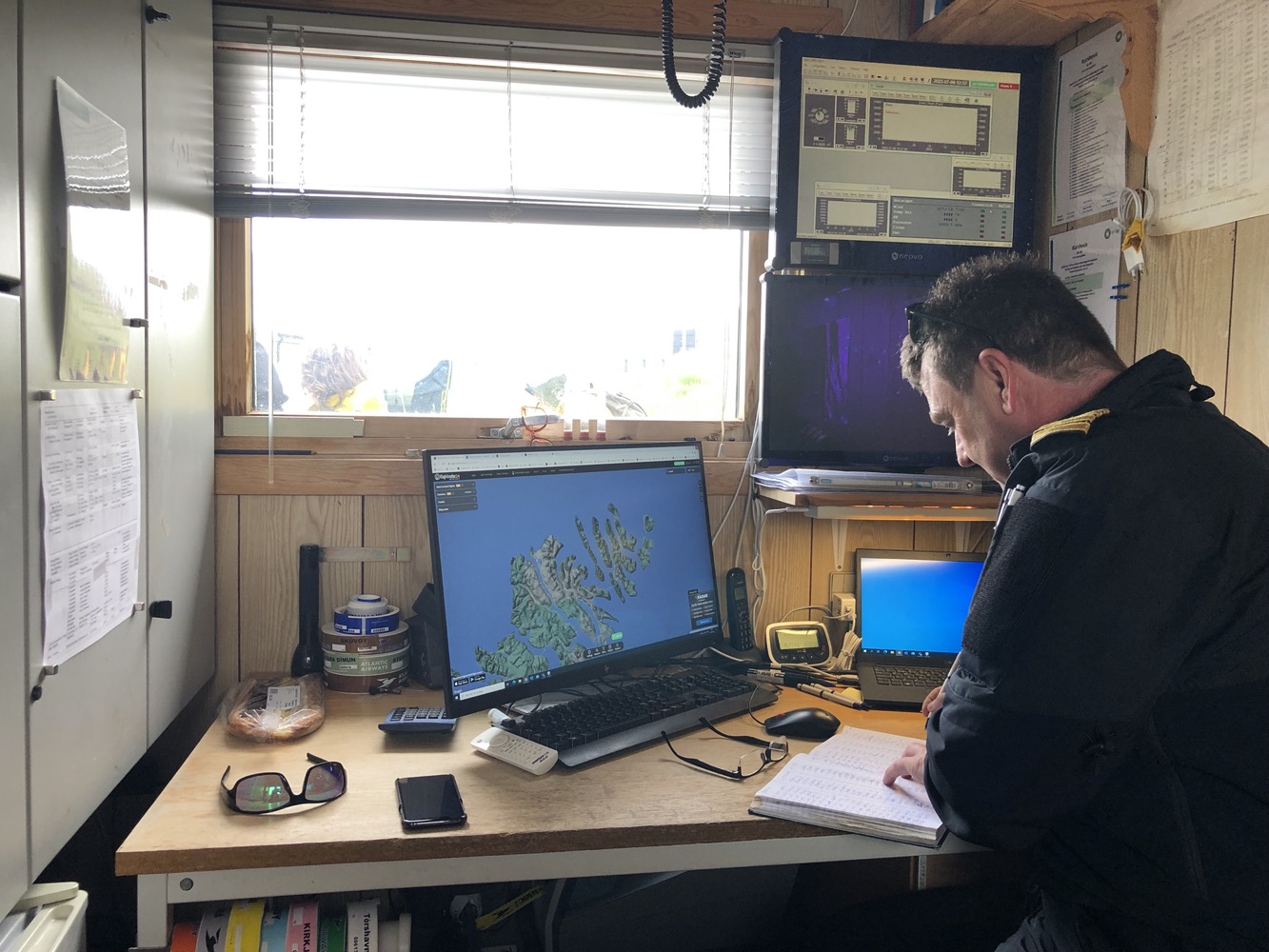
Stunning landscape, here close to Kallur Lighthouse. Around 15,000 passengers travel annually by helicopter between the Faroe Islands. A total of 18 islands are existing in the archipelago. On some days, one helicopter is operating more than 20 legs.
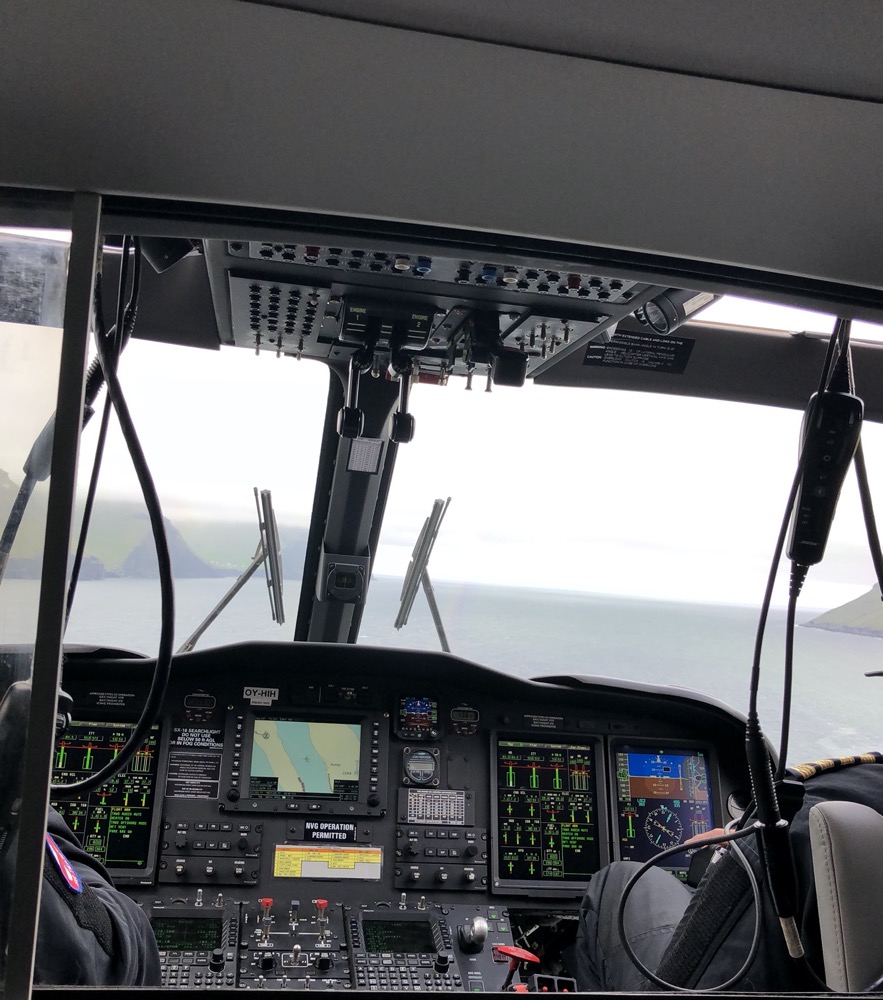
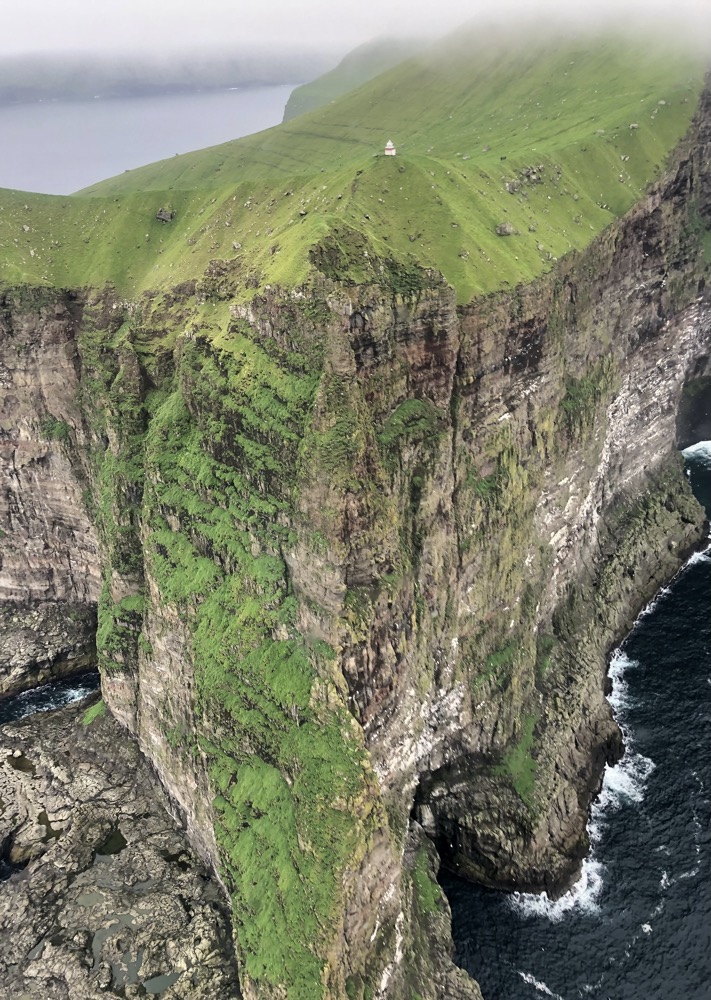
Atlantic Airways CEO Johanna A Bergi (left) enjoys flying by helicopter. But she also knows that Atlantic Airways is facing exactly the same issues as other carriers in Northern Europe, as operations for airlines in this part of the world are expensive.
“We have to bring costs down and we have a plan for that,” she says. “We are challenged to get profit. We are a little organization, but it demands a lot from us”, she told me. Shortly after our conversation, we landed at the capital’s heliport.
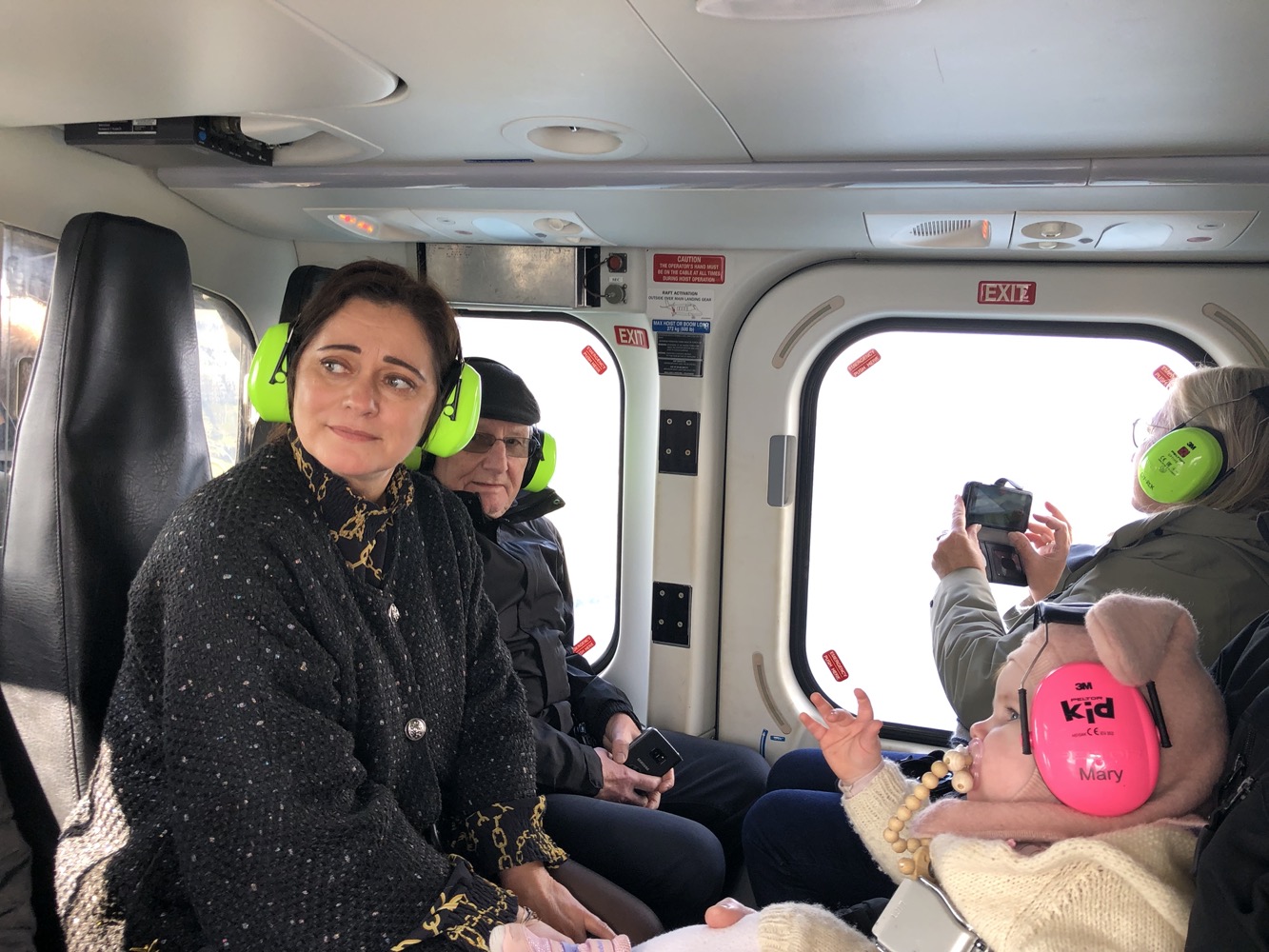
Atlantic Airways MRO Base at Vagar Airport
Around 20 people working in Atlantic Airways own MRO base at Vagar Airport. This is necessary as the carrier is far away from any other larger airport. The Airbus fleet of A319/320/320neo also undergoes larger checks in Vagar, heavy checks will be done by Lufthansa Technik.
However, all the heavy checks for the helicopter fleet is made in Vagar. The carrier will also invest DKK100 million ($13.6 million) in a helicopter simulator training center near Vágar Airport. Atlantic Airways has already established a flight academy for this project. The Thales simulator should become operational in the first quarter of 2024.
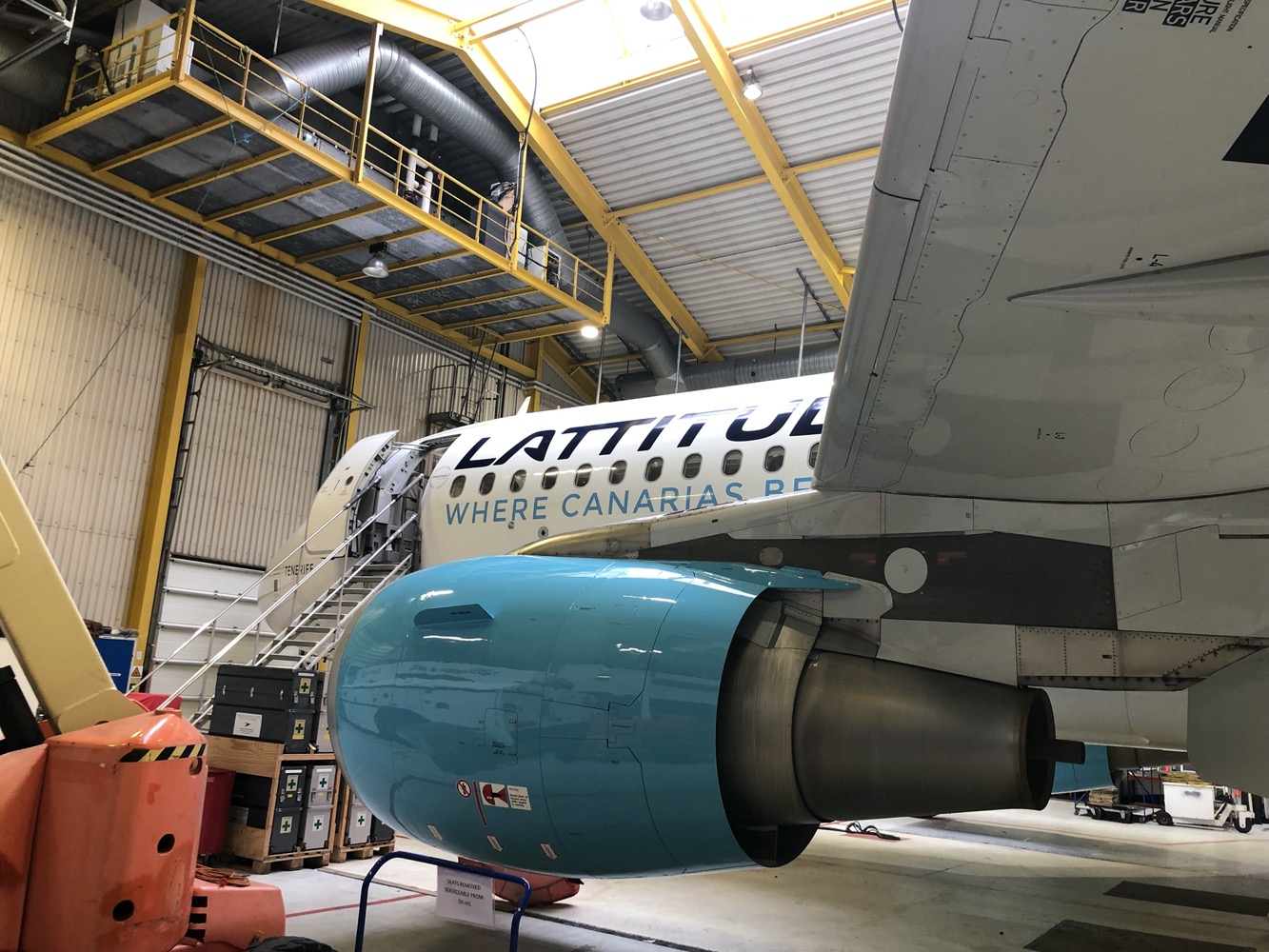
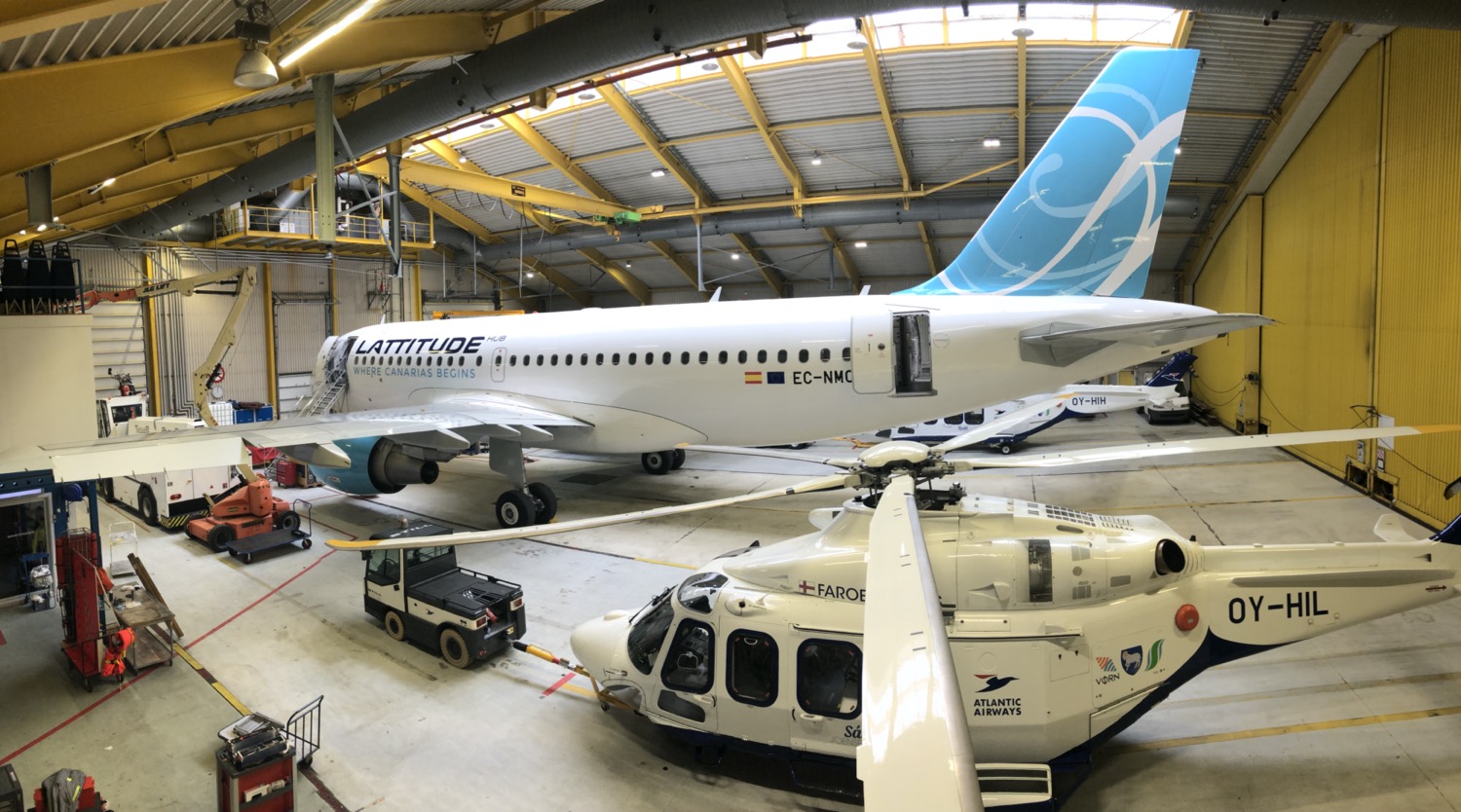
Nearly on every scheduled service to Denmark, in the rear cabin of the Airbus fleet, will be stretchers installed. They are in storage in these boxes. Stretchers are necessary to transport patients for medical treatment from the Faroe Islands to the European continent.
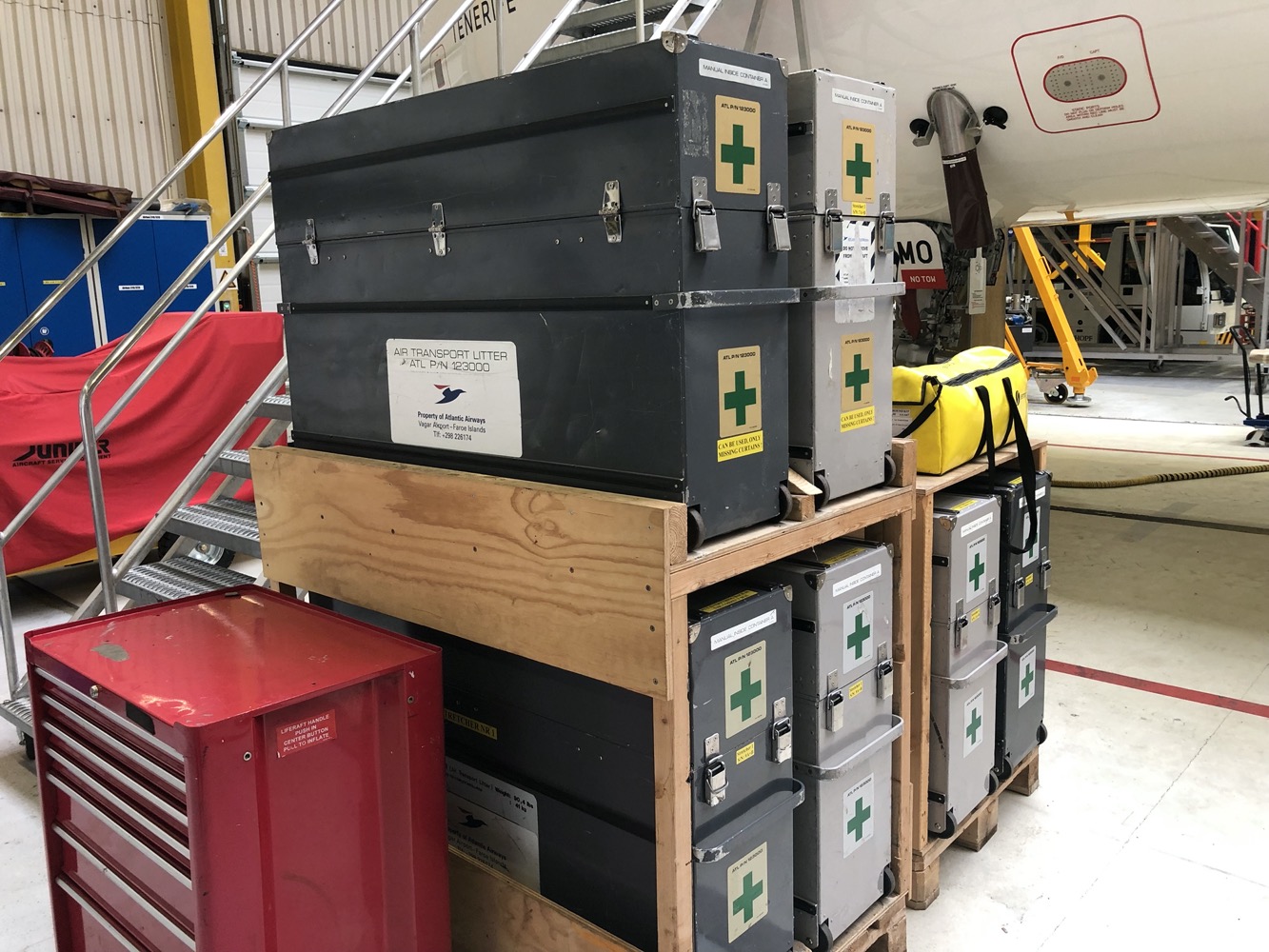
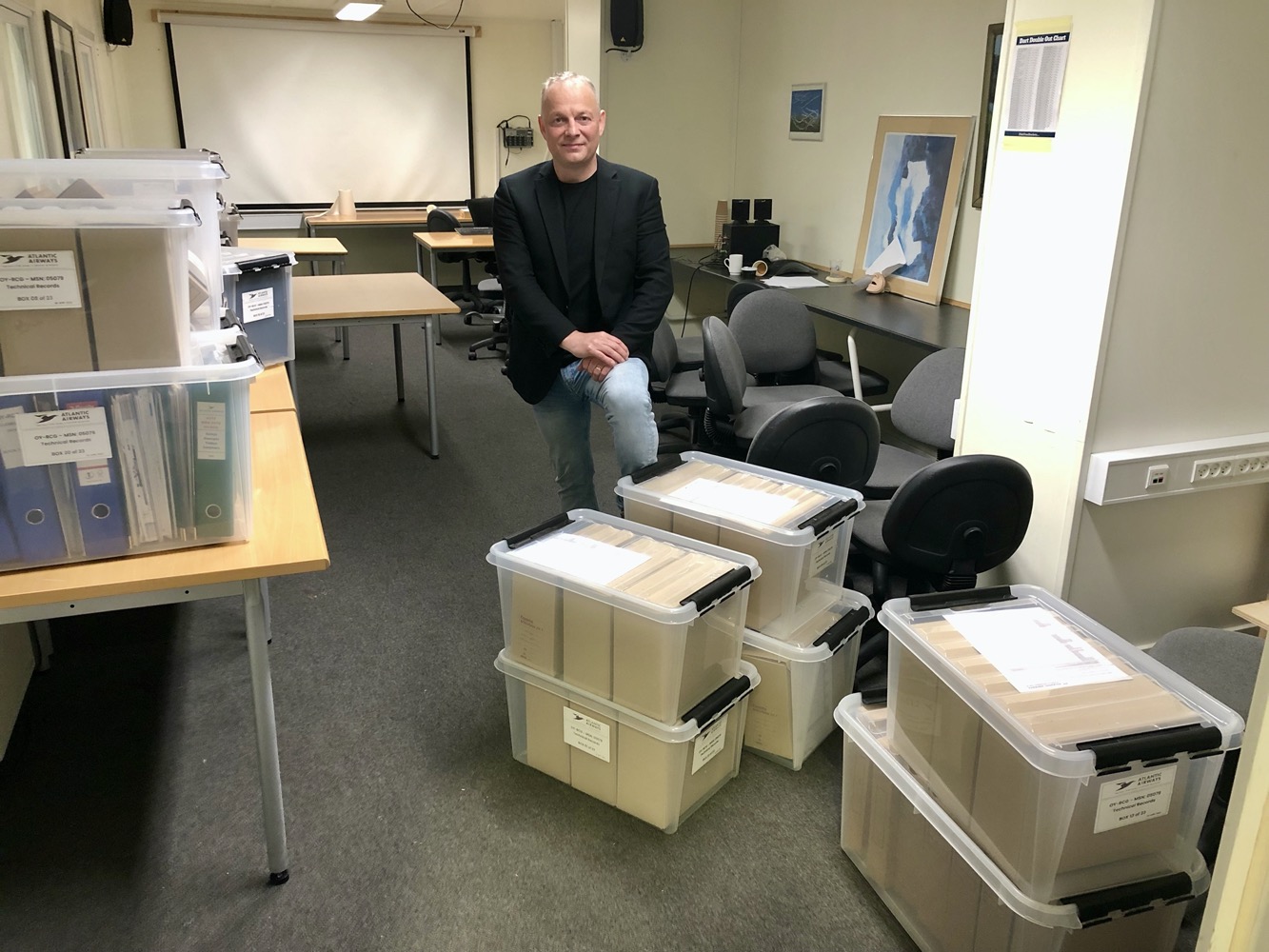
The aircraft is returning from a lease contract so the MRO employees are checking all the documentation if the entire maintenance has been performed correctly. A part of this documentation will be digitalized. Technical Director William Smith shows all the documentation boxes. Nearly 36 kilograms of paper per year.
Samal Danielsen, Airbus A320 captain, 13.000 flying hours of experience and Director of Flight Operations. He demonstrates the remote location of the Faroe Islands. Alternate airports would be Bergen in Norway or Keflavik in Iceland.
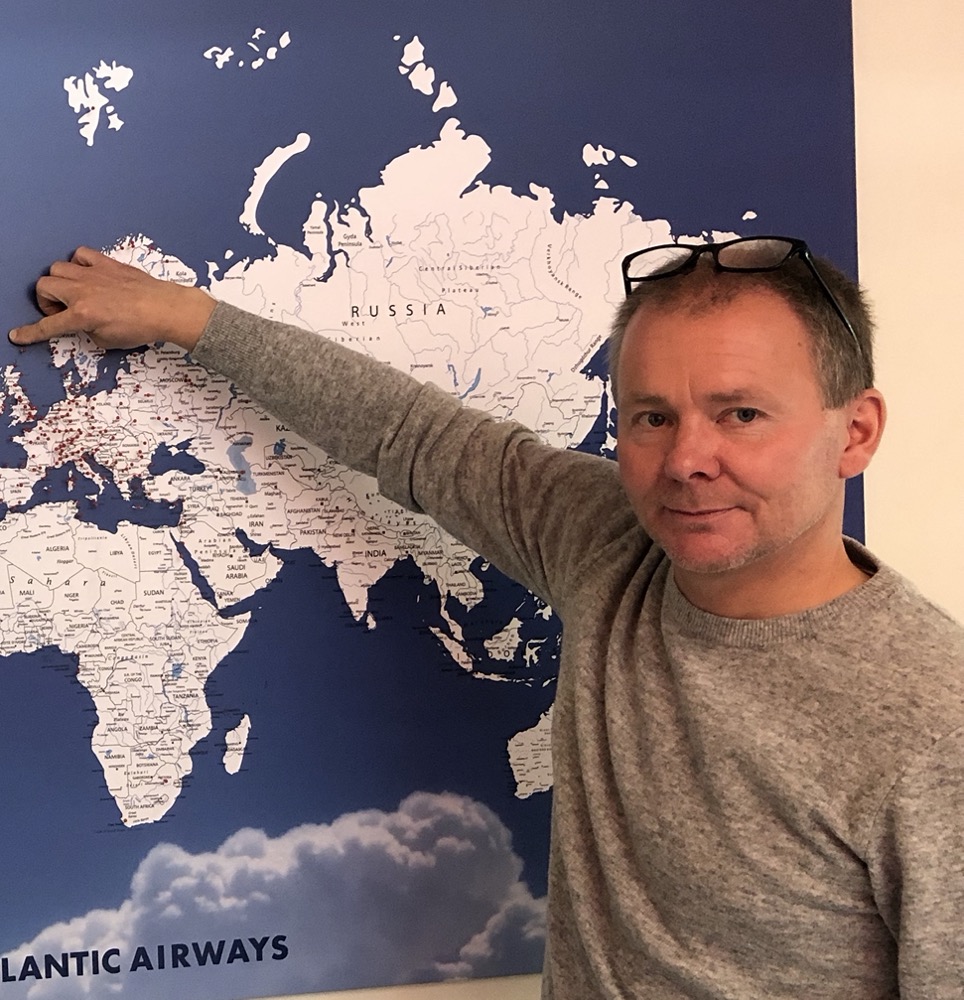
“We have a very wide-ranging and strict pilot training. To become a captain, every first officer has to completed two winter seasons and must have 5.000 flight hours of experience“.
Samal Danielsen, Director of Flight Operations, Atlantic Airways
Atlantic Airways have 30 pilots, including six instructors and 15 captains. The runway in Vagar is only 30 meters wide and 1,999 meters long. Summer operations are challenged with fog, during winter, darkness and strong winds create difficulties and can lead to flight interruptions.
Summary
Atlantic Airways is one of those airlines which are providing a key lifeline connection from a remote place, like Air Greenland is doing. Beside the helicopters, they are operating one A320ceo, two A320neo and one A319, which is planed to be sold or leased out. Next year, flights to New York are planned as the interest of tourists in visiting Faroe Islands is growing. Atlantic Airways operates to ten destinations in Europe this current summer.
Here are some Pros and Cons I observed from my flight experience with them:
Pros
- Modern fleet and friendly Crew
- Highly experienced cockpit crew
Cons
- The challenging weather condition can lead to flight cancellations for several days
- Vagar Airport can be too busy when two A320s depart at the same time

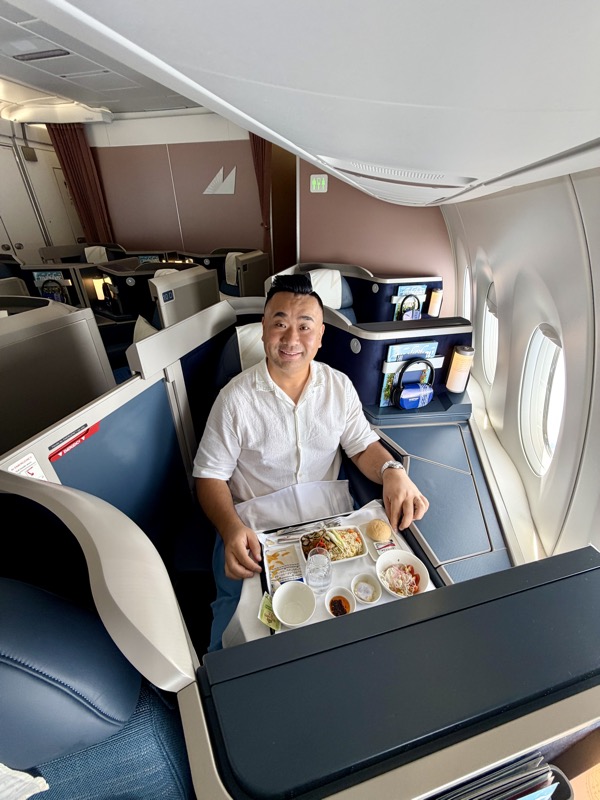
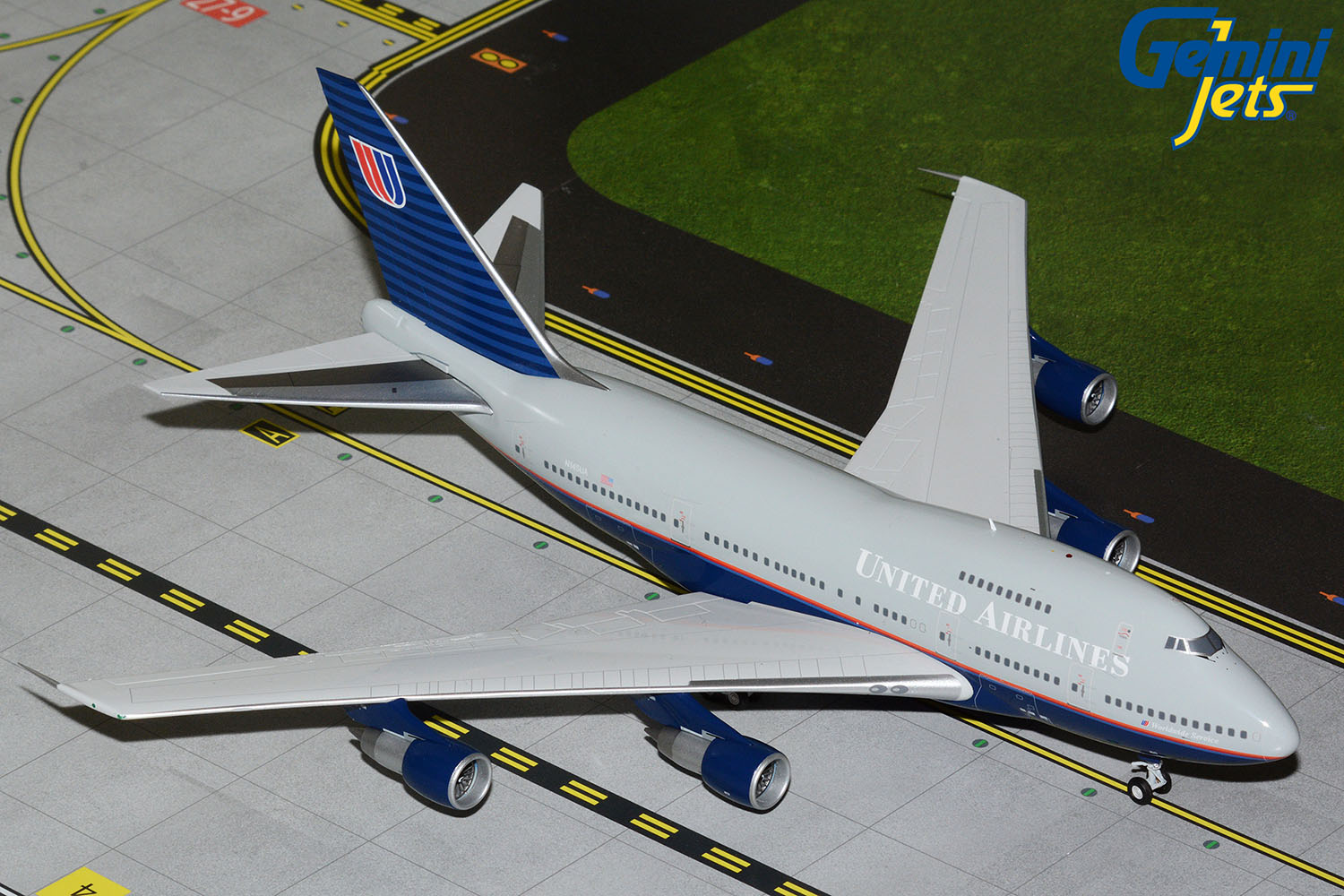
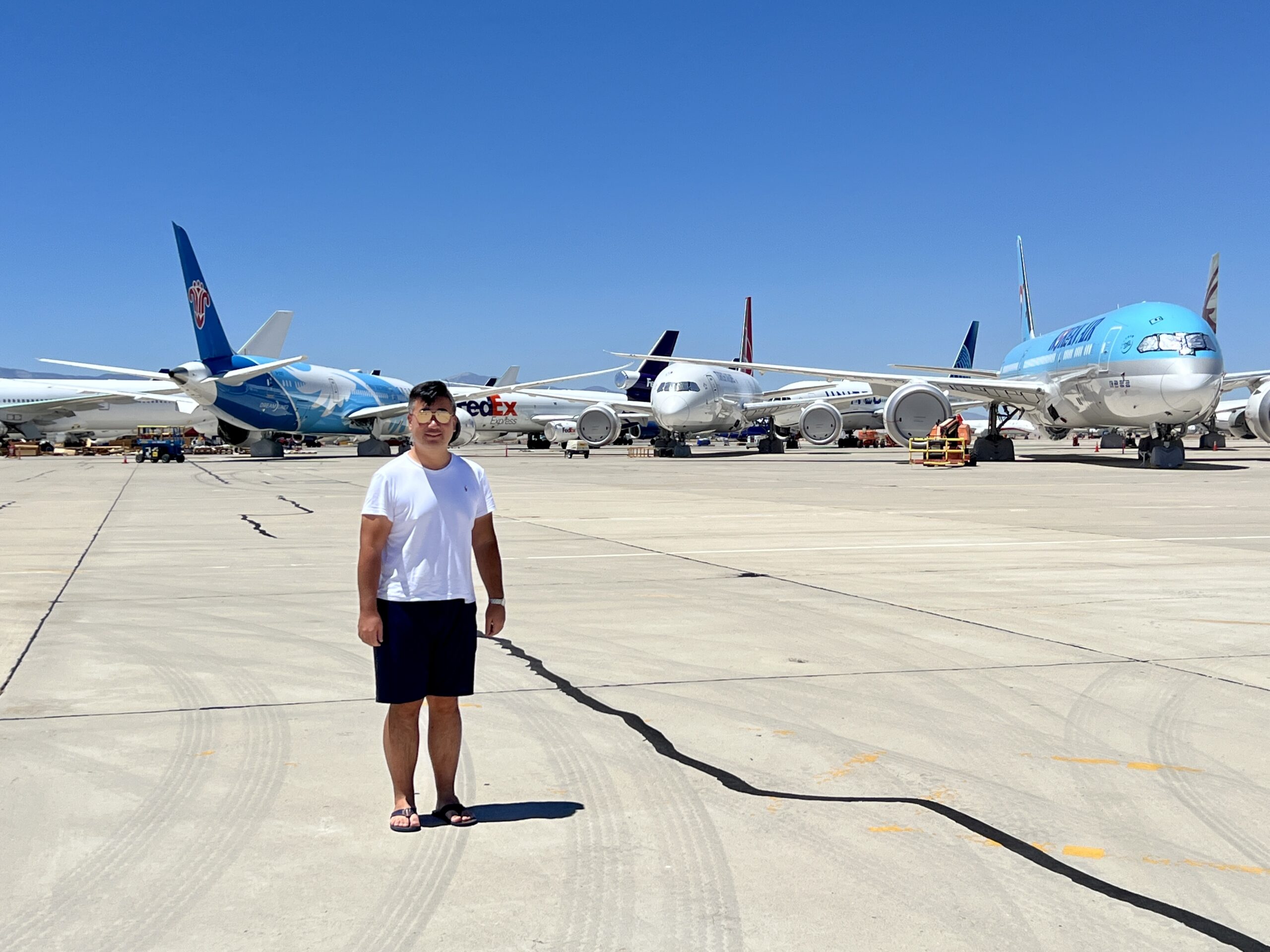
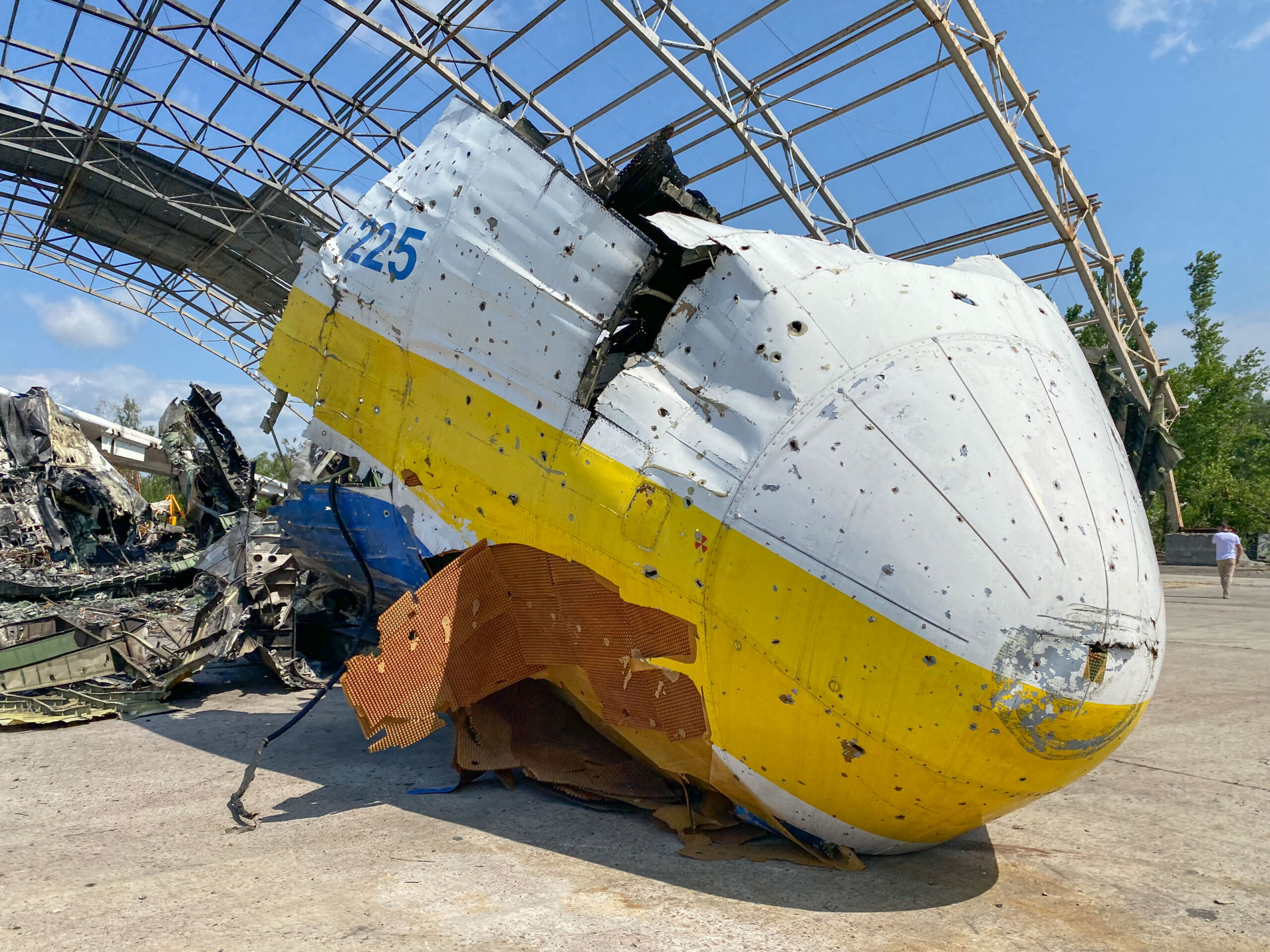
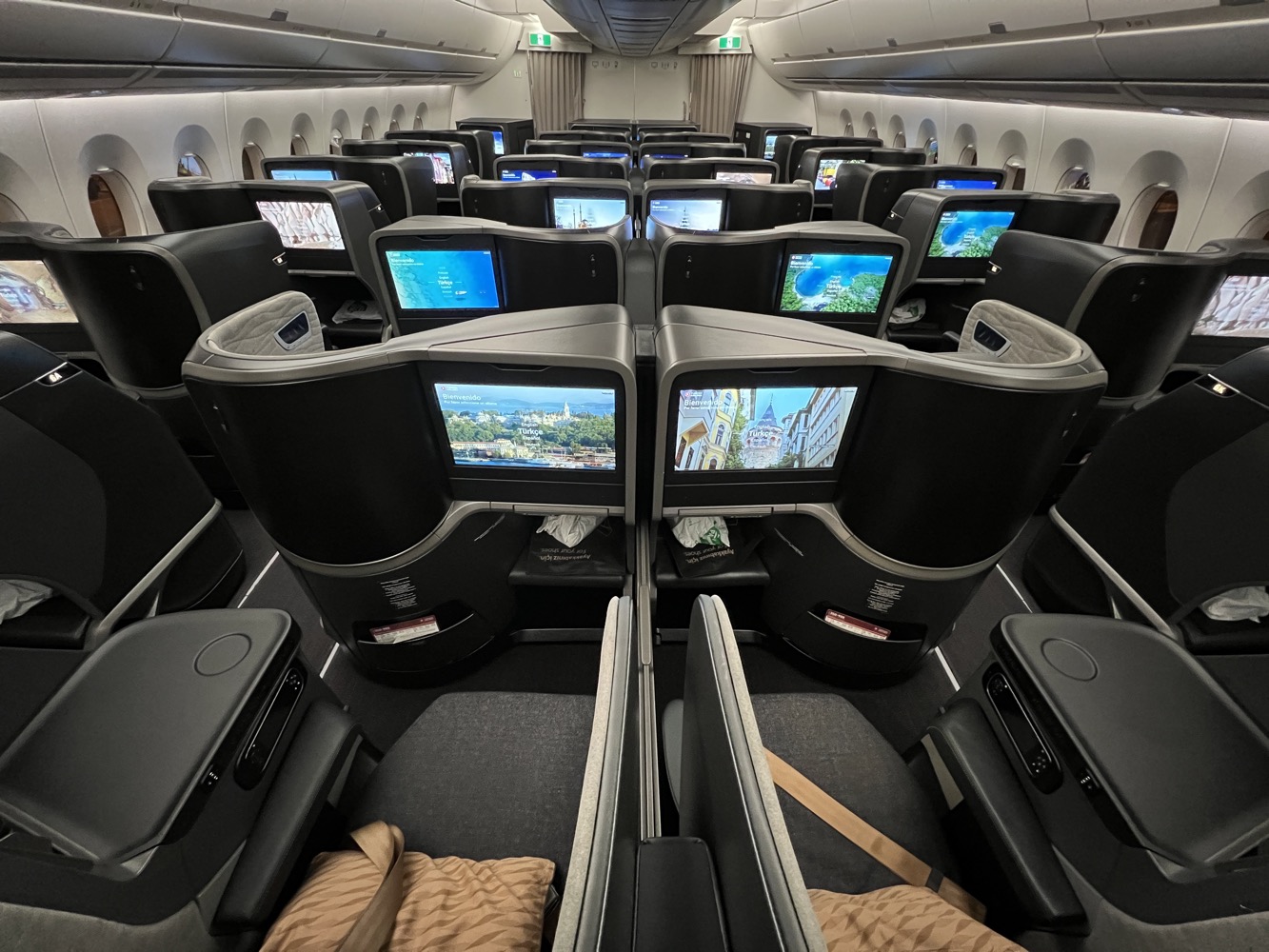
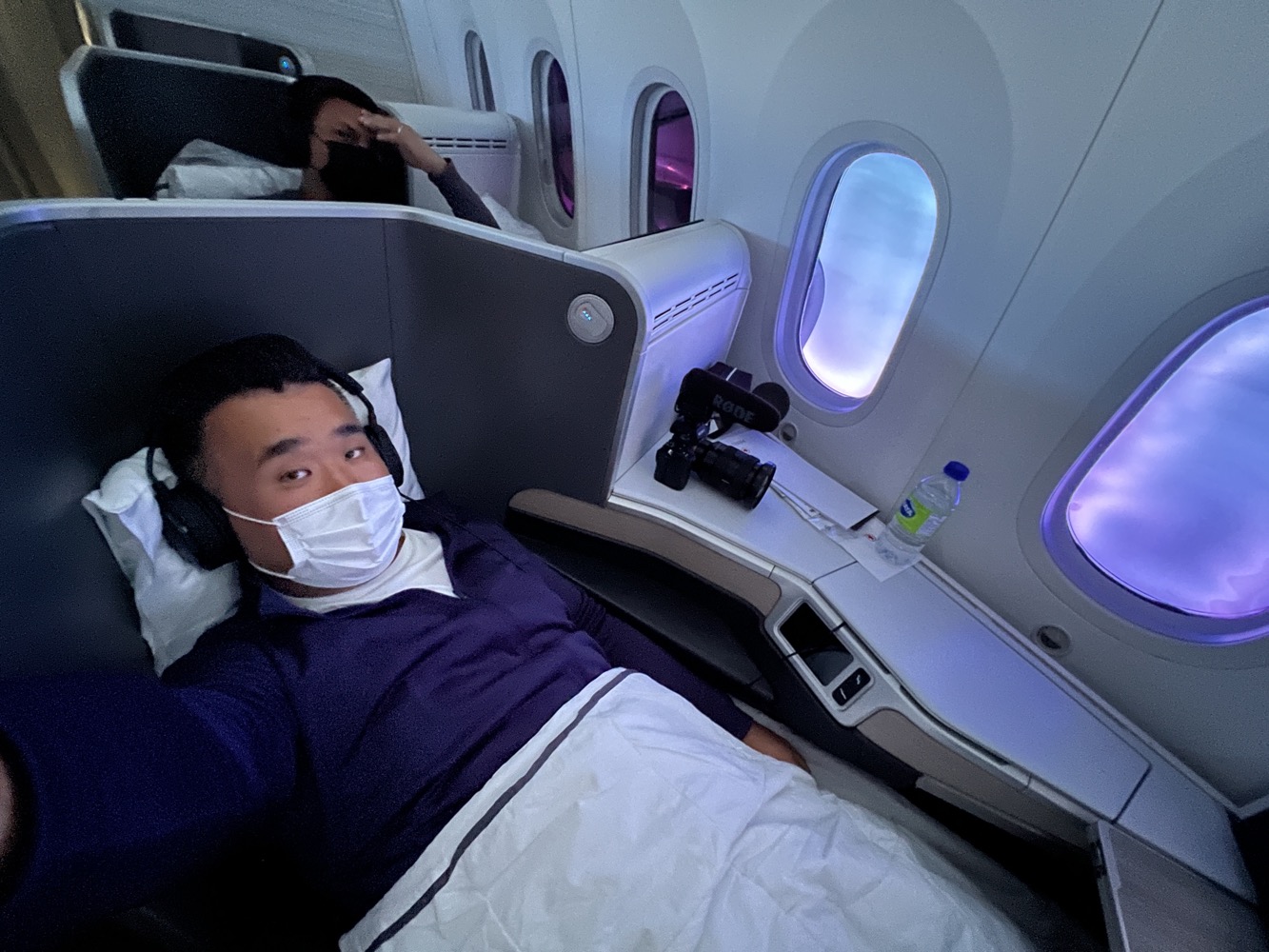
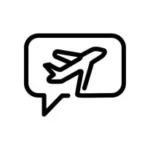

We went there for my birthday, in April, and had the time of our lives. Our Airbnb had a rental car included, we took a 2-hour ferry for free “because it was just one-way”, we flew back in a helicopter for $30 (1/2 hour flight) with the same pilot from the picture! They were all so nice. We took a boat ride along the cliffs. It was unforgettable. We flew our drone all over the islands and we took a road trip. All in a very short trip. We were heading to Norway afterwards. We can’t wait to go back. Their fish and chips (French fries) are delicious. Locals were very friendly and most importantly, there were more sheep than people, so you feel like you have the islands to yourself. You won’t lose internet even in the tunnels and there are tons! Totally worth it.
Long time reader, first time caller. Can you provide a review of your time in the Faroe Islands? I’ve always wanted to visit. Thank you!